What is a myth and what does it serve?
A myth is a narrative based usually on a false story which can not be used as a replacement of history, but sometimes the myth might be considered a distorted account of a real historical event. The myth does not differ much from a folktale and usually the boundary between them is very thin. A myth must not be used to reconstruct, however in the ancient society of the so called “”Ancient Greeks”” a myth was usually regarded as a true account for a remote past. Surprisingly this ‘tradition’ was inherited to the Modern Greeks as well. They never loose the chance to use the myths and the mythology of a remote past and to pose them as their real ethnic history. This job is being done combining the ancient myths with the ones already created in the modern era. Now let’s take a look at two Greek myths, respectively one ancient and one modern, while our job is to prove that even these myths are respectively hijacked or created to join realities not related to each other, but unfortunately propagandized belonging to a real history, the history of the Greek race.
Thus before we analyze and expose some of their myths which are uncountable, we are inclined to say that whatever is considered Greek History is completely based on mythical stories, whose reliability and truthiness is deeply compromised for the mere fact that is based on myths of this kind not only by the Modern Greeks and especially philhellenes, but even by the ancient authors. One of them Strabo in a moment of self-reflection to the weakness of those mythical stories is appealing like this:
In an another statement, the same ancient geographer and historian, being aware of the weakness of that history wrote:
STRABO 8.3.9
So using these sources, which are self-claimed as unreliable, makes your entire reconstruction of the history very fragile and irrelevant. However it is worth it to share with the readers these “historical” sources, upon which most of the historians, base their work.
Ancient myth No. 1.
These people were ruled (much earlier that the name Hellenes firstly appearing) by an Egyptian ruler named Danaus. According to the mythology(not the history) he was twin brother of Aegyptus and son of Achiroe and Belus, a mythical king of Egypt. As the old accounts tell us, he named the people upon who he was ruling after himself.
Strabo, Book 008.006.009
and created the Pelasgic tribe of Mirmidones:
This tribe was not originally from Thessaly (and perhaps never been in Thessaly, Macedonia), like Greek propaganda speculates based on some quotes from ancient authors, but from the small island of Aegina
In the time of Achilles there were not a major race called Hellenes because as Thucydides puts it :
That Argives(from the capital Argos), Danaans, Mycenai, and Achaeans are words interchangeably used to describe the same people of the Pelasgian race is an well-known fact but let us read a fragment from the remarkable lines of Euripides in this regard:
Euripide, Orestes 408 BC
Pelasgian was the culture which by archeology is classified as the Mycenaean civilization. What the linguists label as an ancient form of Greek(Linear B) must have been in fact the language of the Pelasgians, even the later incoming language of Hellenes is a form of the Pelasgian language. The label is very important, since its name enables a series of modern political and historical pretenses, which have affected the course of history.
What is wrongly known as Ancient Greek was in fact the language of the Pelasgians, and its written form might have been largely different from the spoken language. Pelasgian was something larger and different in what it represented in quantity, time and space from the entire Hellenic’ World even in it’s zenith. The boundaries of the Hellenic World in the ancient times never reached those aspired and propagandized by the Greeks, ancient or modern whatsoever, they remained limited, and the territory within was inhabited not only by the Hellenes but by all sorts and sizes of different races, who if we trust the old accounts were larger than those of Hellenes even in the “Greece” proper. The notorious idea, that the race of Hellenes was the dominant race since Mychanean era and at least until the Roman invasion is a subject to be refined to that degree that the result could be completely different from the original one. The thesis circulating in some political environment that Epirus was inhabited from some non culturally developed Greek speakers is also false. Its falsity starts at the moment is used the term Greek, because Hellenes were not the originators of that language.
Myth no 2.(Modern myth about antiquity)
Here it is a map of Epirus, created for any purpose other that representing the real mosaic of tribes inhabiting this area in the ancient times.
Strictly using ancient authors’ quotes only, we will modify it, simply placing the right information in it, which has intentionally altered and wrongly interpreted by the map creator, who is a disgusting speculator and doesn’t deserve the academic position he presumably enjoys. We previously explained many huge distortions of the real situation made in this map for certain tribes in the article (Reviewing an “”Ancient”” map), but today we will stop particularly to the tribes known as Epirotes, who are propagandized from this map as Greek.
A myth is a narrative based usually on a false story which can not be used as a replacement of history, but sometimes the myth might be considered a distorted account of a real historical event. The myth does not differ much from a folktale and usually the boundary between them is very thin. A myth must not be used to reconstruct, however in the ancient society of the so called “”Ancient Greeks”” a myth was usually regarded as a true account for a remote past. Surprisingly this ‘tradition’ was inherited to the Modern Greeks as well. They never loose the chance to use the myths and the mythology of a remote past and to pose them as their real ethnic history. This job is being done combining the ancient myths with the ones already created in the modern era. Now let’s take a look at two Greek myths, respectively one ancient and one modern, while our job is to prove that even these myths are respectively hijacked or created to join realities not related to each other, but unfortunately propagandized belonging to a real history, the history of the Greek race.
Thus before we analyze and expose some of their myths which are uncountable, we are inclined to say that whatever is considered Greek History is completely based on mythical stories, whose reliability and truthiness is deeply compromised for the mere fact that is based on myths of this kind not only by the Modern Greeks and especially philhellenes, but even by the ancient authors. One of them Strabo in a moment of self-reflection to the weakness of those mythical stories is appealing like this:
Strabo book 13.1.1
|
πρὸς τοῦτο δὲ συγγνώμης δεῖ καὶ παρακλήσεως, ὅπως τὴν αἰτίαν τοῦ μήκους μὴ ἡμῖν μᾶλλον ἀνάπτωσιν οἱ ἐντυγχάνοντες ἢ τοῖς σφόδρα ποθοῦσι τὴν τῶν ἐνδόξων καὶ παλαιῶν γνῶσιν· προσλαμβάνει δὲ τῷ μήκει καὶ τὸ πλῆθος τῶν ἐποικησάντων τὴν χώραν Ἑλλήνων τε καὶ βαρβάρων, καὶ οἱ συγγραφεῖς οὐχὶ τὰ αὐτὰ γράφοντες περὶ τῶν αὐτῶν οὐδὲ σαφῶς πάντα· ὧν ἐν τοῖς πρώτοις ἐστὶν Ὅμηρος εἰκάζειν περὶ τῶν πλείστων παρέχων. δεῖ δὲ καὶ τὰ τούτου διαιτᾶν καὶ τὰ τῶν ἄλλων ὑπογράψαντας πρότερον ἐν κεφαλαίῳ τὴν τῶν τόπων φύσιν.
|
With this fact in view, I
should ask the pardon of my readers and appeal to them not to fasten
the blame for the length of my discussion upon me rather than upon those who
strongly yearn for knowledge of the things that are famous and ancient. And my discussion is further prolonged by the number of the peoples
who have colonized the country, both Greeks and barbarians (a clear division put from Strabo-my
note), and by the historians, who do not write the same
things on the same subjects, nor always clearly either; among the first of these is Homer, who leaves us to guess
about most things. And it is necessary for me to arbitrate
between his statements and those of the others, after I shall first have
described in a summary way the nature of the region in question
|
In an another statement, the same ancient geographer and historian, being aware of the weakness of that history wrote:
STRABO 8.3.9
| πολλὰ μὲν οὖν καὶ μὴ ὄντα λέγουσιν οἱ ἀρχαῖοι συγγραφεῖς, συντεθραμμένοι τῷ ψεύδει διὰ τὰς μυθογραφίας: | However, the early historians say many things that are not true, because they were accustomed to falsehoods on account of the use of myths in their writings |
So using these sources, which are self-claimed as unreliable, makes your entire reconstruction of the history very fragile and irrelevant. However it is worth it to share with the readers these “historical” sources, upon which most of the historians, base their work.
Ancient myth No. 1.
Achilles and his clan the Aeacides were (ancient) GreeksThis myth has been often used from the Ancient “”Greek””(this term is used as a label only) authors, to connect themselves with what they considered or wished to be their past. The story of Achilles and of those people who attacked the country named Troy, is often considered a real story from the ancient authors. It was so romantic even for them to be left aside as a myth, which what really it was. The history of Achilles often credited as a Greek hero, is a history of a mythical hero in a mythical story, the epic story of Achaeans who attacked Troy. We won’t try to exclude this story from what really happened, but we will definitely prove that whatever the narrative of Troy was, a myth or a real story, the epic song was not dedicated to the Greek heroes, and none of the participants of that battle can be regarded as Hellenes. The whole account about this event real or fiction, was part and was dedicated to a previous culture and people, that of the Pelasgians. Homer in his epic song as rightly noticed from ancient authors like Thucydides or Strabo, nowhere call the participants of the Trojan War by the name Hellenes. He uses instead the names :
1.Achaeans (Ἀχαιοί, Akhaioí) (used 598 times)
2.Danaans (Δαναοί, Danaoi) (used 138 times)
3.Argives (Ἀργεῖοι, Argioi) (used 29 times)
All these names imply the same people who now are wrongly widely recognized as Greeks(or Hellenes), and some modern political clans are working hard to spread the illusion they were such. The truth is that they all represent the population before the Dorian invasion of Peloponnesus , they by no means can be regarded as Hellenes, while the Hellenes are a later small offspring of them, taking the name as usually in those ancient time from a mythical hero Hellen, son of another mythical hero Deucalion. The most celebrated names Achaeans and Achaea, as a result, was given to these people and the region they inhabited.
These people were ruled (much earlier that the name Hellenes firstly appearing) by an Egyptian ruler named Danaus. According to the mythology(not the history) he was twin brother of Aegyptus and son of Achiroe and Belus, a mythical king of Egypt. As the old accounts tell us, he named the people upon who he was ruling after himself.
Strabo, Book 008.006.009
|
τὴν δὲ ἀκρόπολιν τῶν Ἀργείων οἰκίσαι λέγεται Δαναός, ὃς τοσοῦτον τοὺς πρὸ αὐτοῦ δυναστεύοντας ἐν τοῖς τόποις ὑπερβαλέσθαι δοκεῖ ὥστε κατ’ Εὐριπίδην Πελασγιώτας ὠνομασμένους τὸ πρὶν Δαναοὺς καλεῖσθαι νόμον ἔθηκ’ ἀν’ Ἑλλάδα
|
The acropolis of the Argives is said to have been founded by Danaüs, who is reputed to have surpassed so much those who reigned in this region before him that, according to Euripides,”throughout Greece he laid down a law that all people hitherto named Pelasgians should be called Danaans.”
|
Obviously the name Pelasgian is equivalent to the name Danans or Argives or Achaeans.
The immediate succession of Hellenes in the history of the Pelasgians of Peloponnesus is what causes the confusion among many of us in regard of the name we ethnically label the people who attacked Troy.
For the sake of truth the name Hellenes is found one single time among the people portrayed from Homer in his Iliad as the Troy’ attackers (Iliad 2.681):
The immediate succession of Hellenes in the history of the Pelasgians of Peloponnesus is what causes the confusion among many of us in regard of the name we ethnically label the people who attacked Troy.
For the sake of truth the name Hellenes is found one single time among the people portrayed from Homer in his Iliad as the Troy’ attackers (Iliad 2.681):
| τοὺς ὅσσοι τὸ Πελασγικὸν Ἄργος ναιον, οἵ τ’ Ἄλον οἵ τ’ Ἀλόπην οἵ τε Τρηχῖνα νέμοντο,οἵ τ’ εἶχον Φθίην ἠδ’ Ἑλλάδα καλλιγύναικα, Μυρμιδόνες δὲ καλεῦντο καὶ Ἕλληνες καὶ Ἀχαιοί,τῶν αὖ πεντήκοντα νεῶν ἦν ἀρχὸς Ἀχιλλεύς |
Now all those again that inhabited Pelasgian Argos (1)and dwelt in Alos and Alope and Trachis,and that held Phthia and Hellas, the land of fair women,and were called Myrmidons and Hellenes and Achaeansof the fifty ships of these men was Achilles captain.
|
However even though a well-known martial tribe, their number used to represent just a tiny particle of the Pelasgian race. The Hellenes mentioned in this paragraph are different from the people which was considered to be the core of the Hellenic race, who were the Dorians and appeared in this land generations later as invaders of Homeric Hellenes, killing, subduing and driving them out of their land.
In the paragraph above the mythical hero Achilles was the captain of the Pelasgian warriors. That Achilles was Pelasgian is easily verifiable, he came from a Pelasgian land (1)(Iliad 2.681), he was worshiping a Pelasgian God :
Zeus (Iliad 16.200):
In the paragraph above the mythical hero Achilles was the captain of the Pelasgian warriors. That Achilles was Pelasgian is easily verifiable, he came from a Pelasgian land (1)(Iliad 2.681), he was worshiping a Pelasgian God :
Zeus (Iliad 16.200):
Ζεῦ ἄνα Δωδωναῖε Πελασγικὲ τηλόθι ναίων Δωδώνης μεδέων υσχειμέρου
|
Zeus, thou king, Dodonaean, Pelasgian, thou that dwellest afar, ruling over wintry Dodona
|
and his race was nowhere called Hellenic in the main source but Pelasgian. As a matter of fact he was grandson of Aeacus (Αἴακος) and member of the family clan Aeacidians Aἰακίδης who took the name from the patriarch Aeacus, who was the king of a small island beside Peloponnesus, called Aegina:
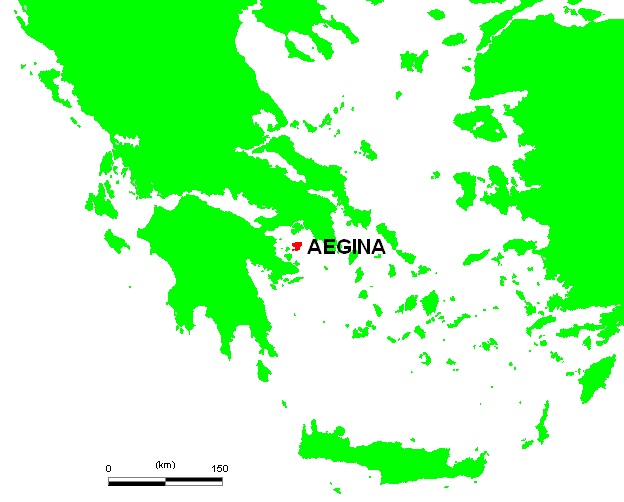

and created the Pelasgic tribe of Mirmidones:
This tribe was not originally from Thessaly (and perhaps never been in Thessaly, Macedonia), like Greek propaganda speculates based on some quotes from ancient authors, but from the small island of Aegina
Strabo 008.006.016
Μυρμιδόνας δὲ κληθῆναί φασιν οὐχ ὡς ὁ μῦθος τοὺς Αἰγινήτας, ὅτι λοιμοῦ μεγάλου συμπεσόντος οἱ μύρμηκες ἄνθρωποι γένοιντο κατ’ εὐχὴν Αἰακοῦ, ἀλλ’ ὅτι μυρμήκων τρόπον ὀρύττοντες τὴν γῆν ἐπισπείροιεν ἐπὶ τὰς πέτρας, ὥστ’ ἔχειν γεωργεῖν, ἐν δὲ τοῖς ὀρύγμασιν οἰκεῖν φειδόμενοι πλίνθων
|
It is said that the Aeginetans were called Myrmidons, not as the myth has it, because, when a great famine occurred, the ants became human beings in answer to a prayer of Aeacus, but because they excavated the earth after the manner of ants and spread the soil over the rocks, so as to have ground to till, and because they lived in the dugouts, refraining from the use of soil for bricks
|
In the time of Achilles there were not a major race called Hellenes because as Thucydides puts it :
“because the Hellenes had not as yet been designated by a common distinctive name opposed to that of the barbarians”
The name of the small tribe of Hellenes mentioned in the Iliad, might have been reused much later on to refer to the mighty Hellenes we are all familiar with who were essentially different people from the former. Even archeologically the name Hellenes in the wider sense of the word appears only for the first in writing in an inscription, dedicated to Heracles for his victory in the Amphictyonic Games, and refers to the 48th Olympiad (584 BC).
So naming the Troy’ attackers(Danaans, or Achaeans or in wider meaning Pelasgians) as Greek is inappropriate, irrelevant and abusive. So is the act of naming heroes of this great race, like Achilles and his Mirmidones. It is true that a small portion of Pelasgic race started calling themselves as Hellenes, but the former and the later are far from being equally the same.
All accounts from antiquity confirm that what consists in the nucleus of the later Hellenes appeared generations later of the Trojan War event:
So naming the Troy’ attackers(Danaans, or Achaeans or in wider meaning Pelasgians) as Greek is inappropriate, irrelevant and abusive. So is the act of naming heroes of this great race, like Achilles and his Mirmidones. It is true that a small portion of Pelasgic race started calling themselves as Hellenes, but the former and the later are far from being equally the same.
All accounts from antiquity confirm that what consists in the nucleus of the later Hellenes appeared generations later of the Trojan War event:
Pausanias, Description of Greece 4.3.1
After the conclusion of the Trojan War and the death of Nestor after his return home, the Dorian expedition and return of the Heracleidae, which took place two generations later, drove the descendants of Nestor from Messenia. This has already formed a part of my account of Tisamenus I will only add the following: When the Dorians assigned Argos to Temenus, Cresphontes asked them for the land of Messenia, in that he was older than Aristodemus.
It was exactly these Dorians who first among all would have called themselves Hellenes, drove out from Peloponnese(the heart of the so called Greece) what remained from the participants of Trojan War and their families. All the old accounts show us that those people who attacked Troy called Achaeans not only identified themselves in a wider meaning & interchangeably as Danaans or Pelasgians, and not Hellenes, but made a common cause against the people who later would be the first calling themselves as such. What would have become the core of the later Hellenes, never participated in the Trojan War, and this later culture and people are intentionally suggested to us as the participants in it.
The stories from the past being myth are often unsecure and unreliable to determine a clear image of the ancient events but even if we follow these tracks, we can reach a conclusion easily provable that:
The stories from the past being myth are often unsecure and unreliable to determine a clear image of the ancient events but even if we follow these tracks, we can reach a conclusion easily provable that:
1. The Dorians(and Heraclides) were the first among all others to identify themselves as Hellenes much later the Trojan War event, they were the core of the Hellenic people and did not participate in the Trojan War.
2. The participants of the Trojan War were called Achaeans or Pelasgians(mainly from Peloponnesus and the around islands) were driven out from their land, exactly by the people who in a much later period were the first identifying themselves as Hellenes. These Hellenes were invaders and persecutors of the Pelasgic Achaeans, and they firmly fought each-other until the end, which was the Peloponnesian War (431 to 404 B.C around 800 years after Trojan War), which ended up with the triumph of the Hellenes.
3. All Achaeans mythical heroes including Achilles (and his family clan starting from his son Neoptolemos) were not Hellenes, they were Pelasgians, who never returned back to their original home(most likely Aegina), but they went and ruled over people of the same race, the Pelasgians of Epirus.
That the Ancient Greeks were inclined to make capital of the Pelasgians and their heroes, nobody can deny, but the Moderns Greeks for every one who knows their intentions is doubtless that their aspirations to make capital from the ancient people is limitless, and this eager to claim ancient cultures as theirs is extended beyond the proper Ancient Greeks. This aspirations include any race or sub-race who inhabited Balkans and was somehow vaguely related to Ancient Greeks, except the Illyrians. In this rush to claim anything as Greek, the Modern ones don’t follow any standard or criteria for that approach. The tendency of some pre and post classical authors to look at Homeric heroes as Greeks(especially Achilles and his descendents) is not only stressed out from the Modern Greeks but also used to union a great amount of presumptions.
Their logic works like this: ‘Since Achilles was a Greek, his son Neoptolemos established a Greek dynasty into Epirus whose Greekness was descended until Pyrrhus, and amongst the entire Mollosian dynasty, and thus making any member of this clan a Greek”
The senseless of this logic does not only consist in the weak ties that connect its structure, but also for reasons like myths where this presumptions are based on, and most of all for intentionally ignoring the mere fact that Achilles and the entire race of the Danaans was Pelasgian which in its meaning exceeds considerably even the greatest Hellenic one. .
Their logic works like this: ‘Since Achilles was a Greek, his son Neoptolemos established a Greek dynasty into Epirus whose Greekness was descended until Pyrrhus, and amongst the entire Mollosian dynasty, and thus making any member of this clan a Greek”
The senseless of this logic does not only consist in the weak ties that connect its structure, but also for reasons like myths where this presumptions are based on, and most of all for intentionally ignoring the mere fact that Achilles and the entire race of the Danaans was Pelasgian which in its meaning exceeds considerably even the greatest Hellenic one. .
Homer, Odyssey 11.440
| ὣς ἔφατ’, αὐτὰρ ἐγώ μιν ἀμειβόμενος προσέειπον:‘Ἀτρεί̈δη, τί με ταῦτα διείρεαι; οὐδέ τι οἶδα,ζώει ὅ γ’ ἦ τέθνηκε: κακὸν δ’ ἀνεμώλια βάζειν.’“νῶι μὲν ὣς ἐπέεσσιν ἀμειβομένω στυγεροῖσινἕσταμεν ἀχνύμενοι θαλερὸν κατὰ δάκρυ χέοντες:ἦλθε δ’ ἐπὶ ψυχὴ Πηληϊάδεω Ἀχιλῆοςκαὶ Πατροκλῆος καὶ ἀμύμονος ἈντιλόχοιοΑἴαντός θ’, ὃς ἄριστος ἔην εἶδός τε δέμας τετῶν ἄλλων Δαναῶν μετ’ ἀμύμονα Πηλεί̈ωνα.ἔγνω δὲ ψυχή με ποδώκεος Αἰακίδαοκαί ῥ’ ὀλοφυρομένη ἔπεα πτερόεντα προσηύδα: |
“Thus we two stood and held sad converse with one another, sorrowing and shedding big tears; and there came up the spirit of Achilles, son of Peleus, and those of Patroclus and of peerless Antilochus and of Aias, who in comeliness and form was the goodliest of all the Danaans after the peerless son of Peleus. And the spirit of the swift-footed son of Aeacus recognized me, and weeping, spoke to me winged words: “Son of Laertes, sprung from Zeus, Odysseus of many devices, rash man, what deed yet greater than this wilt thou devise in thy heart?
|
That Argives(from the capital Argos), Danaans, Mycenai, and Achaeans are words interchangeably used to describe the same people of the Pelasgian race is an well-known fact but let us read a fragment from the remarkable lines of Euripides in this regard:
Euripide, Orestes 408 BC
| Ἠλέκτρα Μυκηνίδες ὦ φίλαι, τὰ πρῶτα κατὰ Πελασγὸν ἕδος Ἀργείων. Χορός τίνα θροεῖς αὐδάν, πότνια; παραμένειγὰρ ἔτι σοι τόδ’ ἐν Δαναϊδῶν πόλει. | ELECTRA O you women of Mycenae, my friends, among the first ranks of those who live in the Argives’ Pelasgian home. CHORUS LEADER What is it you want to say, my lady? You still retain this title in the city where the sons of Danaus live. MENELAUS O land of the Danaans and you who live in horse-rich Argos, take up your weapons and bring help on the run. To save his life this man here is using force against you, against the entire city, though he carries the pollution of his mother’s murdered blood |
Pelasgian was the culture which by archeology is classified as the Mycenaean civilization. What the linguists label as an ancient form of Greek(Linear B) must have been in fact the language of the Pelasgians, even the later incoming language of Hellenes is a form of the Pelasgian language. The label is very important, since its name enables a series of modern political and historical pretenses, which have affected the course of history.
What is wrongly known as Ancient Greek was in fact the language of the Pelasgians, and its written form might have been largely different from the spoken language. Pelasgian was something larger and different in what it represented in quantity, time and space from the entire Hellenic’ World even in it’s zenith. The boundaries of the Hellenic World in the ancient times never reached those aspired and propagandized by the Greeks, ancient or modern whatsoever, they remained limited, and the territory within was inhabited not only by the Hellenes but by all sorts and sizes of different races, who if we trust the old accounts were larger than those of Hellenes even in the “Greece” proper. The notorious idea, that the race of Hellenes was the dominant race since Mychanean era and at least until the Roman invasion is a subject to be refined to that degree that the result could be completely different from the original one. The thesis circulating in some political environment that Epirus was inhabited from some non culturally developed Greek speakers is also false. Its falsity starts at the moment is used the term Greek, because Hellenes were not the originators of that language.
Myth no 2.(Modern myth about antiquity)
Epirus was inhabited from some sort of Greeks who belonged to the so called North-West Greek speakers (dialect).That the Epirotes might have spoken a language similar to that of the so called Hellenes is not a surprise for us, since we still consider both Hellenes and Epirotes as Pelasgians’ offspring, however them being strictly Greeks or very close to them following the modern standards about the estimation of ethnicity is far from being true. There is no way you can apply the same standards for the people of that remote time because the human society was organized quite differently from ours, nevertheless we will neglect this, and we will analyze each of the major Epirotic tribes separately bringing quotes which will isolate the presumably truthiness of their thesis showing its absurdity.
Here it is a map of Epirus, created for any purpose other that representing the real mosaic of tribes inhabiting this area in the ancient times.
Strictly using ancient authors’ quotes only, we will modify it, simply placing the right information in it, which has intentionally altered and wrongly interpreted by the map creator, who is a disgusting speculator and doesn’t deserve the academic position he presumably enjoys. We previously explained many huge distortions of the real situation made in this map for certain tribes in the article (Reviewing an “”Ancient”” map), but today we will stop particularly to the tribes known as Epirotes, who are propagandized from this map as Greek.
Strabo in his book 7.7.8 using the information taken from another “”Greek”” historian, Theopompus (4th c. B.C) identifies 11 tribes inhabiting Epirus from 14 suggested by Theopompus.
1. Chaones-Χαονες
2. Thesprotoi-θεσπρωτοι
2.a Kassopaians
3. Mollosoi-Μολλοσοι
4. Atintanes-Ατιντανες
5. Athamanes-Αθαμανες
6. Tymfaioi-Τυμφαιοι
7. Aithikes-Αιθικες
8. Orestai-Ορεσται
9. Enienes-Ενιηνες
10. Peraeboi-Περαιβοι
11. Amphilochoi- Ἀμφίλοχοι
2.a Kassopaians
3. Mollosoi-Μολλοσοι
4. Atintanes-Ατιντανες
5. Athamanes-Αθαμανες
6. Tymfaioi-Τυμφαιοι
7. Aithikes-Αιθικες
8. Orestai-Ορεσται
9. Enienes-Ενιηνες
10. Peraeboi-Περαιβοι
11. Amphilochoi- Ἀμφίλοχοι
We already know that the most known tribes of Epirus were Thesprotians(+Kassopaians), Mollosians, and Chaonians . Several ancient authors like Thucydides(The Peloponnesian War 2.80.1), Strabo (7.7.6), Theopompus(Strabo 7.7.8), Ephorus(Strabo 8.1.3), Hecateus of Miletus(Strabo 7.7.1), Skylax of Karyander, Pseudo- Scymnus etc have not included these tribes within Greece proper, some of the above have named them barbarians (a term used to define a person ethnicity as opposed to a Greek one)
Strabo was had no doubt calling the entire race of the Epirotes as Pelasgians:
Strabo 5.2.4
Strabo 5.2.4
|
As for the Pelasgi, almost all agree, in the first place, that some ancient tribe of that name spread throughout the whole of Greece, and particularly among the Aeolians of Thessaly. Again, Ephorus says that he is of the opinion that, since they were originally Arcadians, they chose a military life, and that, in converting many peoples to the same mode of life, they imparted their name to all, and thus acquired great glory, not only among the Greeks, but also among all other people whithersoever they had chanced to come. For example, they prove to have been colonisers of Crete, as Homer says; at any rate, Odysseus says to Penelope: “But one tongue with others is mixed; there dwell Achaeans, there Cretans of the old stock, proud of heart, there Cydonians, and Dorians too, of waving plumes, and goodly Pelasgians.” And Thessaly is called “the Pelasgian Argos” (I mean that part of it which lies between the outlets of the Peneius River and Thermopylae as far as the mountainous country of Pindus), on account of the fact that the Pelasgi extended their rule over these regions. Further, the Dodonaean Zeus is by the poet himself named “Pelasgian”: “O Lord Zeus, Dodonaean, Pelasgian.” And many have called also the tribes of Epirus “Pelasgian,” because in their opinion the Pelasgi extended their rule even as far as that. And, further, because many of the heroes were called “Pelasgi” by name, the people of later times have, from those heroes, applied the name to many of the tribes; for example, they have called the island of Lesbos “Pelasgia,” and Homer has called “Pelasgi” the people that were neighbours to those Cilicians who lived in the Troad:
|
and to drop the pretenses raised that this term was not used to denote ethnic implication but just cultural one let’s bring a quote from one of the above authors:
Scymnus of Chios( Geographer)
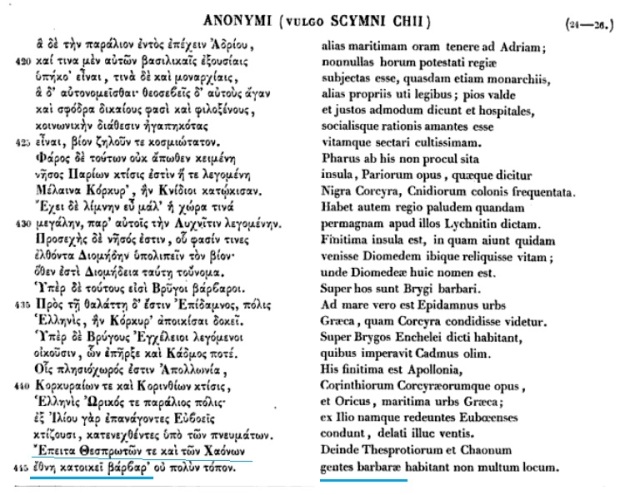
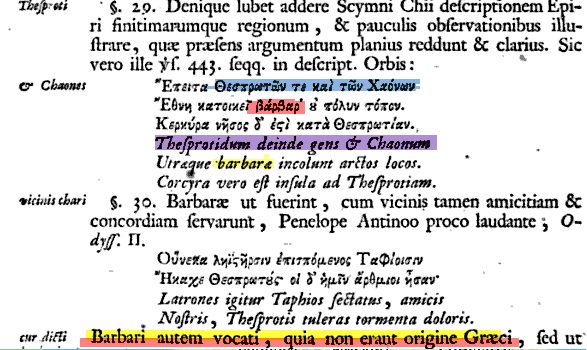
Scymnus of Chios( Geographer)


The above highlighted sentence doesn’t leave room for interpretations, it clearly says that Chaonians and Thesprotians were βάρβαρ-οι and the meaning of this word is explained as explicit in there: NOT OF GREEK ORIGIN.
Strabo in his book 14.002.028, explains in details his view about the βάρβαρ-οι
It is quite clear that the term barbarians was applied only to address the non-Greeks who even when they were trying to speak Greek were according Strabo:
τοῦ ποιητοῦ δ’ εἰρηκότος οὑτωσί Μάσθλης αὖ Καρῶν ἡγήσατο βαρβαροφώνων, οὐκ ἔχει λόγον πῶς τοσαῦτα εἰδὼς ἔθνη βάρβαρα μόνους εἴρηκε βαρβαροφώνους τοὺς Κᾶρας, βαρβάρους δ’ οὐδένας· οὔτ’ οὖν Θουκυδίδης ὀρθῶς· οὐδὲ γὰρ λέγεσθαί φησι βαρβάρους διὰ τὸ μηδὲ Ἕλληνάς πω ἀντίπαλον εἰς ἓν ὄνομα ἀποκεκρίσθαι· τό τε γὰρ μηδὲ Ἕλληνάς πω ψεῦδος αὐτὸς ὁ ποιητὴς ἀπελέγχει ἀνδρός, τοῦ κλέος εὐρὺ καθ’ Ἑλλάδα καὶ μέσον Ἄργος. καὶ πάλιν εἴτ’ ἐθέλεις τραφθῆναι ἀν’ Ἑλλάδα καὶ μέσον Ἄργος. μὴ λεγομένων τε βαρβάρων πῶς ἔμελλεν εὖ λεχθήσεσθαι τὸ βαρβαροφώνων; οὔτε δὴ οὗτος εὖ οὔτ’ Ἀπολλόδωρος ὁ γραμματικός, ὅτι τῷ κοινῷ ὀνόματι ἰδίως καὶ λοιδόρως ἐχρῶντο οἱ Ἕλληνες κατὰ τῶν Καρῶν, καὶ μάλιστα οἱ Ἴωνες μισοῦντες αὐτοὺς διὰ τὴν ἔχθραν καὶ τὰς συνεχεῖς στρατείας· ἐχρῆν γὰρ οὕτως βαρβάρους ὀνομάζειν. ἡμεῖς δὲ ζητοῦμεν διὰ τί βαρβαροφώνους καλεῖ, βαρβάρους δ’ οὐδ’ ἅπαξ. “ὅτ” φησί “τὸ πληθυντικὸν εἰς τὸ μέτρον οὐκ ἐμπίπτει, διὰ τοῦτ’ οὐκ εἴρηκε βαρβάρους.” ἀλλ’ αὕτη μὲν ἡ πτῶσις οὐκ ἐμπίπτει, ἡ δ’ ὀρθὴ οὐ διαφέρει τῆς Δάρδανοι Τρῶες καὶ Λύκιοι καὶ Δάρδανοι. τοιοῦτον δὲ καὶ τό οἷοι Τρώιοι ἵπποι. οὐδέ γε ὅτι τραχυτάτη ἡ γλῶττα τῶν Καρῶν· οὐ γάρ ἐστιν ἀλλὰ καὶ πλεῖστα Ἑλληνικὰ ὀνόματα ἔχει καταμεμιγμένα, ὥς φησι Φίλιππος ὁ τὰ Καρικὰ γράψας. οἶμαι δὲ τὸ βάρβαρον κατ’ ἀρχὰς ἐκπεφωνῆσθαι οὕτως κατ’ ὀνοματοποιίαν ἐπὶ τῶν δυσεκφόρως καὶ σκληρῶς καὶ τραχέως λαλούντων, ὡς τὸ βατταρίζειν καὶ τραυλίζειν καὶ ψελλίζειν. εὐφυέστατοι γάρ ἐσμεν τὰς φωνὰς ταῖς ὁμοίαις φωναῖς κατονομάζειν διὰ τὸ ὁμογενές· ᾖ δὴ καὶ πλεονάζουσιν ἐνταῦθα αἱ ὀνοματοποιίαι, οἷον τὸ κελαρύζειν καὶ κλαγγὴ δὲ καὶ ψόφος καὶ βοὴ καὶ κρότος, ὧν τὰ πλεῖστα ἤδη καὶ κυρίως ἐκφέρεται· πάντων δὴ τῶν παχυστομούντων οὕτως βαρβάρων λεγομένων, ἐφάνη τὰ τῶν ἀλλοεθνῶν στόματα τοιαῦτα, λέγω δὲ τὰ τῶν μὴ Ἑλλήνων. ἐκείνους οὖν ἰδίως ἐκάλεσαν βαρβάρους, ἐν ἀρχαῖς μὲν κατὰ τὸ λοίδορον, ὡς ἂν παχυστόμους ἢ τραχυστόμους, εἶτα κατεχρησάμεθα ὡς ἐθνικῷ κοινῷ ὀνόματι ἀντιδιαιροῦντες πρὸς τοὺς Ἕλληνας. καὶ γὰρ δὴ τῇ πολλῇ συνηθείᾳ καὶ ἐπιπλοκῇ τῶν βαρβάρων οὐκέτι ἐφαίνετο κατὰ παχυστομίαν καὶ ἀφυΐαν τινὰ τῶν φωνητηρίων ὀργάνων τοῦτο συμβαῖνον, ἀλλὰ κατὰ τὰς τῶν διαλέκτων ἰδιότητας. ἄλλη δέ τις ἐν τῇ ἡμετέρᾳ διαλέκτῳ ἀνεφάνη κακοστομία καὶ οἷον βαρβαροστομία, εἴ τις ἑλληνίζων μὴ κατορθοίη, ἀλλ’ οὕτω λέγοι τὰ ὀνόματα ὡς οἱ βάρβαροι οἱ εἰσαγόμενοι εἰς τὸν ἑλληνισμὸν οὐκ ἰσχύοντες ἀρτιστομεῖν, ὡς οὐδ’ ἡμεῖς ἐν ταῖς ἐκείνων διαλέκτοις. τοῦτο δὲ μάλιστα συνέβη τοῖς Καρσί· τῶν γὰρ ἄλλων οὔτ’ ἐπιπλεκομένων πω σφόδρα τοῖς Ἕλλησιν, οὔτ’ ἐπιχειρούντων ἑλληνικῶς ζῆν ἢ μανθάνειν τὴν ἡμετέραν διάλεκτον, πλὴν εἴ τινες σπάνιοι καὶ κατὰ τύχην ἐπεμίχθησαν καὶ κατ’ ἄνδρα ὀλίγοις τῶν Ἑλλήνων τισίν· οὗτοι δὲ καθ’ ὅλην ἐπλανήθησαν τὴν Ἑλλάδα μισθοῦ στρατεύοντες. ἤδη οὖν τὸ βαρβαρόφωνον ἐπ’ ἐκείνων πυκνὸν ἦν ἀπὸ τῆς εἰς τὴν Ἑλλάδα αὐτῶν στρατείας· καὶ μετὰ ταῦτα ἐπεπόλασε πολὺ μᾶλλον, ἀφ’ οὗ τάς τε νήσους μετὰ τῶν Ἑλλήνων ᾤκησαν, κἀκεῖθεν εἰς τὴν Ἀσίαν ἐκπεσόντες οὐδ’ ἐνταῦθα χωρὶς Ἑλλήνων οἰκεῖν ἠδύναντο, ἐπιδιαβάντων τῶν Ἰώνων καὶ τῶν Δωριέων. ἀπὸ δὲ τῆς αὐτῆς αἰτίας καὶ τὸ βαρβαρίζειν λέγεται· καὶ γὰρ τοῦτο ἐπὶ τῶν κακῶς ἑλληνιζόντων εἰώθαμεν λέγειν, οὐκ ἐπὶ τῶν καριστὶ λαλούντων. οὕτως οὖν καὶ τὸ βαρβαροφωνεῖν καὶ τοὺς βαρβαροφώνους δεκτέον τοὺς κακῶς ἑλληνίζοντας· ἀπὸ δὲ τοῦ καρίζειν καὶ τὸ βαρβαρίζειν μετήνεγκαν εἰς τὰς περὶ ἑλληνισμοῦ τέχνας καὶ τὸ σολοικίζειν, εἴτ’ ἀπὸ Σόλων εἴτ’ ἄλλως τοῦ ὀνόματος τούτου πεπλασμένου.
|
When the poet says,Masthles in turn led the Carians, of barbarian speech, we have no reason to inquire how it is that, although he knew so many barbarian tribes, he speaks of the Carians alone as “of barbarian speech,” but nowhere speaks of “barbarians.” Thucydides, therefore, is not correct, for he says that Homer “did not use the term ‘barbarians’ either, because the Hellenes on their part had not yet been distinguished under one name as opposed to them”; for the poet himself refutes the statement that the Hellenes had not yet been so distinguished when he says,My husband, whose fame is wide through Hellas and mid-Argos. And again,And if thou dost wish to journey through Hellas and mid-Argos. Further, if they were not called “barbarians,” how could they properly be called a people “of barbarian speech?” So neither Thucydides is correct, nor Apollodorus the grammarian, who says that the general term was used by the Hellenes in a peculiar and abusive sense against the Carians, and in particular by the Ionians, who hated them because of their enmity and the continuous military campaigns; for it was right to name them barbarians in this sense. But I raise the question, Why does he call them people “of barbarian speech,” but not even once calls them barbarians? “Because,” Apollodorus replies, “the plural does not fall in with the metre; this is why he does not call them barbarians.” But though this case does not fall in with metre, the nominative case does not differ metrically from that of “Dardanians”: Trojans and Lycians and Dardanians. So, also, the word “Trojan,” inof what kind the Trojan horses are. Neither is he correct when he says that the language of the Carians is very harsh, for it is not, but even has very many Greek words mixed up with it, according to the Philip who wrote The Carica. I suppose that the word “barbarian” was at first uttered onomatopoetically in reference to people who enunciated words only with difficulty and talked harshly and raucously, like our words “battarizein,” “traulizein,” and “psellizein”; for we are by nature very much inclined to denote sounds by words that sound like them, on account of their homogeneity. Wherefore onomatopoetic words abound in our language, as, for example, “celaryzein,” and also “clange,” “psophos,” “boe,” and “crotos,” most of which are by now used in their proper sense. Accordingly, when all who pronounced words thickly were being called barbarians onomatopoetically, it appeared that the pronunciations of all alien races were likewise thick, I mean of those that were not Greek. Those, therefore, they called barbarians in the special sense of the term, at first derisively, meaning that they pronounced words thickly or harshly; and then we misused the word as a general ethnic term, thus making a logical distinction between the Greeks and all other races. The fact is, however, that through our long acquaintance and intercourse with the barbarians this effect was at last seen to be the result, not of a thick pronunciation or any natural defect in the vocal organs, but of the peculiarities of their several languages. And there appeared another faulty and barbarian-like pronunciation in our language, whenever any person speaking Greek did not pronounce it correctly, but pronounced the words like barbarians who are only beginning to learn Greek and are unable to speak it accurately, as is also the case with us in speaking their languages. This was particularly the case with the Carians, for, although the other peoples were not yet having very much intercourse with the Greeks nor even trying to live in Greek fashion or to learn our language–with the exception, perhaps, of rare persons who by chance, and singly, mingled with a few of the Greeks–yet the Carians roamed throughout the whole of Greece, serving on expeditions for pay. Already, therefore, the barbarous element in their Greek was strong, as a result of their expeditions in Greece; and after this it spread much more, from the time they took up their abode with the Greeks in the islands; and when they were driven thence into Asia, even here they were unable to live apart from the Greeks, I mean when the Ionians and Dorians later crossed over to Asia. The term “barbarize,” also, has the same origin; for we are wont to use this too in reference to those who speak Greek badly, not to those who talk Carian. So, therefore, we must interpret the terms “speak barbarously” and “barbarously-speaking” as applying to those who speak Greek badly. And it was from the term “Carise” that the term “barbarize” was used in a different sense in works on the art of speaking Greek; and so was the term “soloecise,” whether derived from Soli, or made up in some other way.
|
It is quite clear that the term barbarians was applied only to address the non-Greeks who even when they were trying to speak Greek were according Strabo:
Accordingly, when all who pronounced words thickly were being called barbarians onomatopoetically, it appeared that the pronunciations of all alien races were likewise thick, I mean of those that were not Greek.
So the already completely unproven alibi that since Epirotes were speakers of a Greek dialect they were Greeks(according to our modern standards) is fallacious, ridiculous and irrelevant. They were non-Greeks although they were offspring of the same ancient Pelasgic source. Its here were the speculation starts building up, the Hellenes who were a partition of the Pelasgians were obviously speaking a Pelasgian dialect, however all those tribe who remained more conservative to the Pelasgian origin, like Epirotes, and were still recognizable as Pelasgian were visibly distinct from Hellenes, who by the time elapsed since all Pelasgians had a common name, were separated from the main body and created another distinct nation(whatever the meaning of this word used to be). This clearly makes Epirotes and their main tribes: Chaonians, Mollosians, Thesprotians as non-Greek.
Now let’s mark this fact on the above map:
Now let’s mark this fact on the above map:
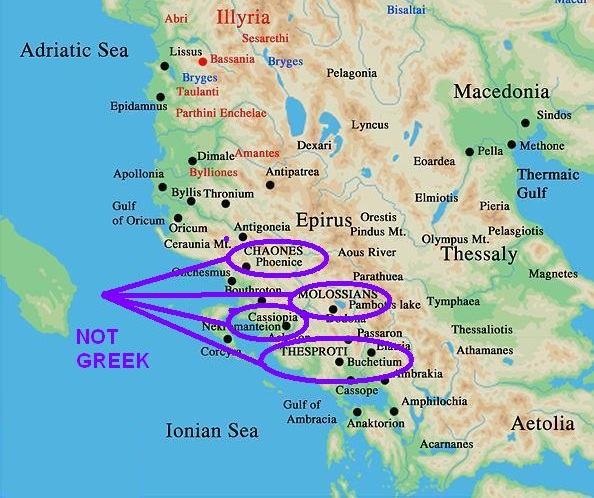
ATINTANES
This tribe was considered from Strabo(book 7.7.8) a tribe of Epirus, living in Epirus inland. This tribe has been attested to be Illyrian tribe too:
Appian The Foreign Wars The Illyrian Wars III.2.7
| Ἰλλυριοὶ μὲν δὴ τὰς πολιορκίας λύσαντες ἀνεχώρουν, καί τινες αὐτῶν ἐς Ῥωμαίους, οἱ Ἀτιντανοὶ λεγόμενοι, μετετίθεντο. μετὰ ταῦτα δὲ ἡ Ἄγρωνος γυνὴ πρέσβεις ἐς Ῥώμην ἔπεμψε τά τε αἰχμάλωτα ἀποδιδόντας αὐτοῖς καὶ τοὺς αὐτομόλους ἄγοντας, καὶ ἐδεῖτο συγγνώμης τυχεῖν τῶν οὐκ ἐφ’ ἑαυτῆς ἀλλ’ ἐπὶ Ἄγρωνος γενομένων. οἱ δὲ ἀπεκρίναντο Κόρκυραν μὲν καὶ Φάρον καὶ Ἴσσαν καὶ Ἐπίδαμνον καὶ Ἰλλυριῶν τοὺς Ἀτιντανοὺς ἤδη Ῥωμαίων ὑπηκόους εἶναι, |
The latter then entered into an alliance with Epidamnus and went to the assistance of the Issii and of the Epidamnians, who were besieged by the Illyrians. The latter raised the siege and fled, and one of their tribes, called the Atintani, went over to the Romans. After these events the widow of Agron sent ambassadors to Rome to surrender the prisoners and deserters into their hands. She begged pardon also for what had been done, not by herself, but by Agron. They received for answer that Corcyra, Pharus, Issa, Epidamnus, and the Illyrian Atintani were already Roman subjects.
|
as we talked about them in a previous article. We don’t know for certain if they were more Epirotic or Illyrian, or if these names were representing different sub-tribes of the same tribe, but what we know for sure is that they were classified as barbaroi from Thucydides:
Thucydides, The Peloponnesian War 2.80.6
| καὶ αὐτῷ παρῆσαν Ἑλλήνων μὲν Ἀμπρακιῶται καὶ Λευκάδιοι καὶ Ἀνακτόριοι καὶ οὓς αὐτὸς ἔχων ἦλθε χίλιοι Πελοποννησίων, βάρβαροι δὲ Χάονες χίλιοι ἀβασίλευτοι, ὧν ἡγοῦντο ἐπετησίῳ προστατείᾳ ἐκ τοῦ ἀρχικοῦ γένους Φώτιος καὶ Νικάνωρ. ξυνεστρατεύοντο δὲ μετὰ Χαόνων καὶ Θεσπρωτοὶ ἀβασίλευτοι. Μολοσσοὺς δὲ ἦγε καὶ Ἀτιντᾶνας Σαβύλινθος ἐπίτροπος ὢν Θάρυπος τοῦ βασιλέως ἔτι παιδὸς ὄντος, καὶ Παραυαίους Ὄροιδος βασιλεύων. |
The Hellenic troops with him consisted of the Ambraciots, Leucadians, and Anactorians, and the thousand Peloponnesians with whom he came;The barbarian of a thousand Chaonians, who, belonging to a nation that has no king, were led by Photius and Nicanor, the two members of the royal family to whom the chieftainship for that year had been confided. With the Chaonians came also some Thesprotians, like them without a king, some Molossians and Atintanians led by Sabylinthus, the guardian of king Tharyps who was still a minor, and some Paravaeans, under their King Oroedus, accompanied by a thousand Orestians, subjects of King Antiochus and placed by him under the command of Oroedus.
|
a term explained above that means not only not-Greek but not of Greek origin as well.
Despite the desperate efforts to duplicate this Illyrian and/or Epirotic tribe in two different ones, they were one and the same, and they were living in Epirus. As for their territory, Pseudo-Skylaks when describing the Illyrian tribes writes:
Skylax is a writer the earliest, 6th B.C.E and the latest, mid-4th century
B.C.E.
22. ILLYRIOI. And after Libyrnians are the Illyrian nation, and the
Illyrians live along beside the sea as far as Chaonia by Kerkyra, the island
of Alkinoös. And there is a Hellenic city here, which has the name
Herakleia, with a harbour. The barbarians called Lotus-eaters are the
following: Hierastamnai, Boulinoi (Hyllinoi), coterminous with Boulinoi the
Hylloi. And these say Hyllos son of Herakles settled them: and they are
barbarians. And they occupy a peninsula a little lesser than the
Peloponnese. And from peninsula parastonion* is upright: Boulinoi live
beside this. And Boulinoi are an Illyric nation. And the coastal voyage is
of the territory of Boulinoi of a long day up to Nestos river.
23. NESTIANS. And from Nestou the voyage is gulf-shaped. And all this gulf
is called Manios. And the coastal voyage is of one day. And there are in
this gulf islands, Proteras, Krateiai, Olynta. And these from one another
are distant 2 stades or a little more, by Pharos and Issa. For here is New
Pharos, a Hellenic island, and Issa island, and these are Hellenic cities.
Before sailing along-the-coast up to the Naron river, much territory extends
very much into the sea. And there is an island near the coastal territory,
which has the name Melite [Malta], and another island near this, which has
the name Kerkyra the Black: and this island runs out very much with one of
the promontories from the coastal territory, and with the other promontory
it comes down to the Naron river. And from Melite it is distant 20 stades,
and from the coastal territory it is distant 8 stades.
24. MANIANS. And from Nestians is the Naron river: and the voyage into the
Narona is not narrow: and even a trireme voyages into it, and boats into the
upper trading-town, being distant from the sea 80 stades. And these are
Illyrian by nation, the Manians. And there is a lake inland from the
trading-town, a great one, and the lake extends to Autariatai, an Illyric
nation. And there is an island in the lake of 120 stades: and this island is
very much well farmed. And from this lake the Naron river flows. And from
the Naron up to the Arion river is a day’s voyage: and from the Arion river
a voyage of a day’s half: and Kadmos’s and Harmonia’s stones are here, and a
sanctuary [not] far from the Rhizous river. And from the Rhizous river to
Bouthoë the voyage ** and the trading-town.
25. ENCHELEIS. A nation of Illyrians are the Encheleis, adjoining the
Rhizous. And out of Bouthoë to Epidamnos, Hellenic city, voyage of a day and
a night, and a road of three days.
26. TAULANTIOI. And of the Taulantians is the Illyric nation, in which
Epidamnos is, and a river flows beside the city which has the name Palamnos.
And out of Epidamnos to Apollonia, a Hellenic city, is a road of two days.
And Apollonia is distant from the sea 50 stades, and the river Aias flows
beside the city. And from Apollonia into Amantia is 320 stades. And the Aias
river from the Pindos Mountain flows beside Apollonia. [And] towards
[Amantia] inland, somewhat into the Ionian gulf is Orikos. It comes down
from Orikia to the sea 90 stades, and from Amantia 60 stades. Sharing a
border with all these in the interior are Atintanes above
Orikia and Karia as far as Dodonia.
And in the Kestris territory is said to be a pedion, name
Erytheia. Here Geryones is said to come and pasture his oxen. By these
places are the Keraunian mountains in Epeiros, and there is an island beside
these places, a small one, which has the name Sason. From here to Orikos
city is a coastal voyage of a day’s third part.
27.[ORIKOI. And the Orikoi occupy of the Amanian territory.] And
the [Amantians], from Boulinoi as far as here, are Illyrians. And the mouth
of the Ionian gulf is from Keraunian mountains as far as cape Iapygia. And
up to Hydroëis city in Iapygia from the Keraunian mountains, the stades of
the voyage across are about 500, [which] is the mouth of the gulf: and the
places inside are the Ionian gulf. There are many harbours in the Adriatic:
and the same thing is the Adriatic and the Ionian.
28. CHAONES. [U]And after Illyrians, Chaonians. And Chaonia has good
harbours: and the Chaonians live in villages. And the coastal voyage of
Chaonia is a half of a day.
29. KORKYRA. And by Chaonia is an island, Korkyra, and a Hellenic city in
it, having three harbours by the city: of these the one is enclosed. And
Korkyra belongs also to Thesprotia more than Chaonia. And I return again
onto the mainland, whence I turned aside.
30. THESPROTIANS. And after Chaonia are the Thesprotian nation. And these
too live in villages: and this territory also has good harbours. Here is a
harbour, which has name Elaia. Into this the harbour the river Acheron
emits: and there is lake Acherousia, out of which the Acheron fiver flows.
And the coastal voyage of Thesprotias is a half of a day.
31. KASSOPIANS. And after Thesprotia is the nation Kassopia. And these too
live in villages. And these live beside as far as into the Anaktoric gulf.
And the coastal voyage of the Kassopians’ territory is a half of a day; and
the Anaktoric gulf is a little less from its mouth as far as into the inner
end, 120 stades. And the mouth has width 4 stades.
32. MOLOTTIA(MOLOSSIA). And after Kassopia are the Molottian nation. And
these live in villages: and they come down only a little here to the sea,
and largely into the interior. And the coastal voyage of Molottian territory
is of 40 stades.
Let us mark this on the map:
ATHAMANES
That was another Epirotic tribe who kept the extreme south-eastern position from all the Epirus tribes. We won’t take for granted that they were barbaroi(non-Greek) since they were Epirotes, not willing to fall not even in a minor speculation, and we know very little about them, but we know very well that they were nowhere attested as Greeks.
Strabo is the first telling us that Athamanes were originally Epirotes but their country was included in a later time within Thessaly:
Strabo 009.005.011
διὰ γὰρ τὴν ἐπιφάνειάν τε καὶ τὴν ἐπικράτειαν τῶν Θετταλῶν καὶ τῶν Μακεδόνων οἱ πλησιάζοντες αὐτοῖς μάλιστα τῶν Ἠπειρωτῶν, οἱ μὲν ἑκόντες οἱ δ’ ἄκοντες, μέρη καθίσταντο Θετταλῶν ἢ Μακεδόνων, καθάπερ Ἀθαμᾶνες καὶ Αἴθικες καὶ Τάλαρες Θετταλῶν, Ὀρέσται δὲ καὶ Πελαγόνες καὶ Ἐλιμιῶται Μακεδόνων.
|
|
The same story was told from Stephanus Byzantinus(Στέφανος Βυζάντιος; fl. 6th century) a later historian in his book Ethnica (Εθνικά). The only difference is that what is Epirote from Strabo’s prospective are Epirotes in the Stephanus Byzantinus’ one seems to be Illyrians, which is a huge indication that the names Epirote and Illyrian are variants of the same name, where the former is just a local name for the later, considering the geography of Epirus.
Ἀθαμανία, χώρα Ἰλλυρίας, οἱ δὲ Θεσσαλίας. τὸ ἐθνικὸν Ἀθαμᾶνες.
Athamania a region in Illyria, or some beleive in Thesalia and the tribe of Athamanes.
We might consider this quote a vague one to determine the exact Athamians’ ethnicity, but combined with other quotes in their regards we might reach a reliable conclusion, that their land had never been included within Greece proper, but most likely within Illyrians (whose nationally is not willed to be shared with those of the Hellenes from Greek propaganda) or Thessalians who originally were kindred of barbaric(non-Greek) Thessprotians, until Athamanians ceased to exist by Strabo’s time(Strabo 9.4.11).
As for the Thessaly(not the Thessaly in Peloponnesus) itself, is often wrongly considered a Greek land only, but the truth is that other than geographicaly was nowhere suggested that Thessalians to be Hellenes proper, their origin is well attested(from at least two ancient sources) to be Thesprotian
Strabo Book 9.443
In reality and as Herodotus also affirms, Thessalians were a branch of Thesprotians thus Thessalians and Epirotans were kinsmen.
Velleius Paterculus, Roman History Book I.3.
The Achaeans, driven from Laconia, established themselves in those localities which they occupy to‑day.The Pelasgians migrated to Athens, and a warlike youth named Thessalus,of the race of the Thesprotians, with a great force of his fellow-countrymen took armed possession of that region, which, after his name, is now called Thessaly.
but also since antiquity Pelasgians(S. Byzantus, Ethnica)
Θεσσαλία, ἀπὸ Θεσσαλοῦ, ἡ πρότερον ΠελασγίαThessaly originally called Pelasgia
and their branch Thracians(also Beotians a race founded from the Phoenician Cadmus who was also the founder of the Illyric race). The general the name used to address them was Pelasgiotis(Πελασγιῶτις), and whatever this name meant it didn’t mean strictly and simply Greek at all, but was used for the people who never became part of the Greek nation(whatever this concept means) mostly Thracians and Epirotes (Thesprotians), who were ‘nationaly’ well differentiated from the Hellenes..
Strabo, Geography, book 7. 7. 8
So, for now I will mark Thessalia as a Pelasgian’s(Thracian) land what it really was and called even when it had been geographically included within Hellas, for the mere reason that Greece had been geographically considered to be the continuation of Pelasgia (in a limited way), regardless the various different tribes of the Pelasgian universe living there from all sorts and sizes.And again, of the Epeirotes, the Molossi became subject to Pyrrhus, the son of Neoptolemus the son of Achilles, and to his descendants, who were Thessalians. But the rest were ruled by men of native stock
A Pelasgian genus too is the following:
PERRHAEBIANS
We talked a lot about them in previous article(The credits belongs to the Pelasgians) proving beyond any doubt that they were of the Pelasgian race.
PERRHAEBIANS
We talked a lot about them in previous article(The credits belongs to the Pelasgians) proving beyond any doubt that they were of the Pelasgian race.
STRABO, Book 9.5.20 (1)
AESCHYLUS, Suppliant, Women 234 (2)
APPIAN, The Foreign Wars ( The Illyrian Wars) Ill. 1.1 (3)
AESCHYLUS, Suppliant, Women 234 (2)
APPIAN, The Foreign Wars ( The Illyrian Wars) Ill. 1.1 (3)
The exact limits location of their territory are determined from Strabo’s description:
Perrhaebians stead fast in war, who had established their homes round wintry Dodona, and dwelt in the fields about lovely Titaresius&…and also because, although the Lapiths held possession of the plains and the Perrhaebian element there were for the most part subject to the Lapiths, the Perrhaebians held possession of the more mountainous parts near Olympus and Tempe, as, for example, Cyphus, and Dodona, and the region about the Titaresius; this river rises in the Titarius Mountain, which connects with Olympus, and flows into the territory of Perrhaebia which is near Tempe,……
This is a very ancient tribe, their existence at least since the Trojan War, has been attested by Homerus himself
Homer Iliad 2.749-751
| Γουνεὺς δ’ ἐκ Κύφου ἦγε δύω καὶ εἴκοσι νῆας: τῷ δ’ Ἐνιῆνες ἕποντο μενεπτόλεμοί τε Περαιβοὶ οἳ περὶ Δωδώνην δυσχείμερον οἰκί’ ἔθεντο οἵ τ’ ἀμφ’ ἱμερτὸν Τιταρησσὸν ἔργα νέμοντο | And Gouneus led from Cyphus two and twenty ships,and with him followed the Enienes and the Perrhaebi, staunch in fight, that had set their dwellings about wintry Dodona,and dwelt in the ploughland about lovely Titaressus, |
And of course being a tribe that was in existence at least 500 years before Hellenes and their names to be filtered from the rest of the world, they Perrhaebians can not be regarded as Hellenes at all, but their name stands portrayed starting to Homerus as Pelasgiotis.
Let’s mark this Illyrian and/or Pelasgian tribe in the map.
In regards to the Perrhaebi, we find an interesting fact, although they are implied as Hellenes from Greek propaganda, they failed to mark them on their original map:
and we find this unusual for a propaganda which self-educated itself with the reflexive habit to mark as Greek or Greek-related any historical and pre-historical people or event. Did they miss to mark Perrhaebi on their map?
No, if you take a look on their map they found time to mark cities such as Pambotis, Astakos or Orraon which never played any role of great importance in the history of Epirus but they failed to mark Perrhaebi. As usually for any Epirotic tribe who is attested to be clearly Pelasgic and/or Illyrian like the case of Perrhaebi they follow the duplication of its name tactics. They invented another tribe naming the same with the Illyrian Perrhaebi, finding this as an alibi for their thesis. Even if we grant for now the pleasure to consider Perrhaebi as a Hellenic tribe, they still didn’t mark them on the map. This is not happening for the reason of amnesia, because if you look their map it’s been flood with all kinds of unnecessary information. The real reason is that this Illyric tribe had been living around the most important religious places such as Dodona and Olympus, making null the pretenses that these places were Greek only worshiping ones. Evidently the Hellenes of close Pelasgic origin were still worshiping the same places and Gods like the other Pelasgic offspring races, such as Illyrians who not only shared the same religion with Hellenes, but their Gods still had room in the most celebrated worship places such as Olympus, even in the time(which came too late) when the division between Hellenes and their forefathers Pelasgians(and the other offspring) was such radical that Hellenes were portraying themselves a distinct race and they have established a distinct Gods’ pantheon.
ARISTOPHANES ”THE BIRDS”
PITHETAERUS Ah! and since when, pray?PROMETHEUS Since you founded this city in the air. There is not a man who now sacrifices to the gods, the smoke of the victims no longer reaches us. Not the smallest offering comes! We fast as though it were the festivall of Demeter. The barbarian gods, who are dying of hunger, are bawling like Illyrians and threaten to make an armed descent upon Zeus, if he does not open markets where joints of the victims are sold.PITHETAERUS What?! there are other gods besides you, barbarian gods who dwell above Olympus?PROMETHEUSIf there were no barbarian gods, who would be the patron of Execestides?
Nevertheless is another very important reason why Greek propaganda “forgot” to mark the Perrhaebi in their own map. Perrhaebi who shared the name Pelasgiotis with the other Pelasgians such as Thessalians and Lapithes, were located in a strategic line of division, the line which divides Macedonians from the most northern Greek tribes, cutting in half the presumed Hellenic continuity, and smashing in pieces the modern Greek pretenses that the Macedonians belonged to the Hellenic race.
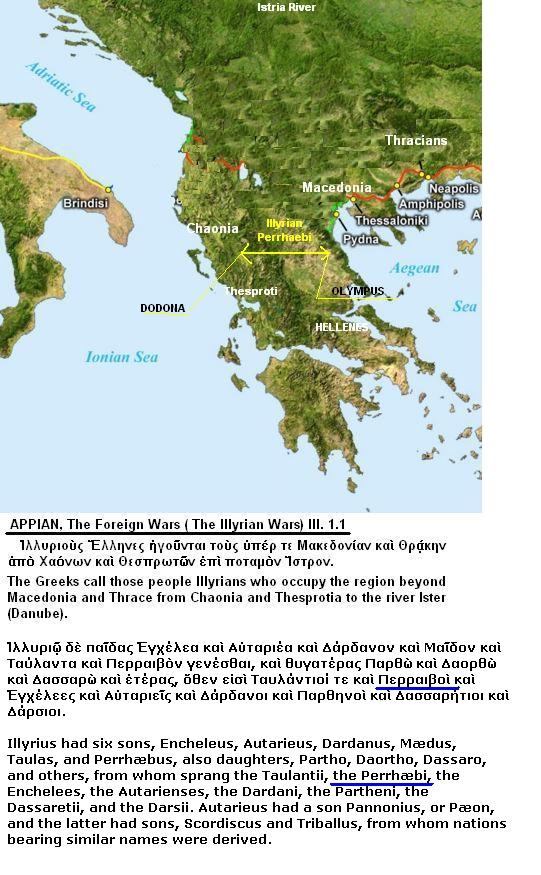
(We will dedicate another article about the ethnicity of the Macedonians)
AMPILOCHIANS
This tribe was located in the most southern area of Epirus.
Strabo portraits them as Epirotes, and if we follow the Greek propaganda standards we expect them to be Greeks, this based in their location too. It was not thinking so the father of the “”greatest Greek ever” Alexander the Great, Philip II king of Macedonia:
POLYBIUS – ‘THE RISE OF THE ROMAN EMPIRE’, HISTORIES Book XVIII.5
Ῥωμαίοις καὶ κελεύοντες ἐκχωρεῖν Μακεδόνας ἁπάσης τῆς Ἑλλάδος: τοῦτο γὰρ ἀναφθέγξασθαι καὶ καθόλου μέν ἐστιν ὑπερήφανον, οὐ μὴν ἀλλὰ Ῥωμαίων μὲν λεγόντων ἀνεκτόν, Αἰτωλῶν δ’ οὐκ ἀνεκτόν: ποίας δὲ κελεύετέ με” φησὶν ” [8] ἐκχωρεῖν Ἑλλάδος καὶ πῶς ἀφορίζετε ταύτην; αὐτῶν γὰρ Αἰτωλῶν οὐκ εἰσὶν Ἕλληνες οἱ πλείους: τὸ γὰρ τῶν Ἀγραῶν ἔθνος καὶ τὸ τῶν Ἀποδωτῶν, ἔτι δὲ τῶν Ἀμφιλόχων, οὐκ ἔστιν Ἑλλάς. [9] ἢ τούτων μὲν παραχωρεῖτέ μοι.
But the most outrageous part of their conduct is that they try to rival Rome, and bid me entirely evacuate Greece! The demand in itself is sufficiently haughty and dictatorial: still, in the mouths of Romans, it is tolerable, but in that of Aetolians quite intolerable. ‘What is this Greece which you demand that I should evacuate, and what do you define Greece? Certainly most of the Aetolians themselves are not Greeks!. The countries of the Agraae, the Apodotea, and the Amphilochians cannot be regarded as Greeks. So do you allow to me to remain in those territories.
The surprise doesn’t come for the Amphilochians, since we already know from other ancient sources like for ex. Pseudo-Scymnus
that they were no Greeks, and learnt Greek language only during the contacts with the Greek colonists of Ambracia, and not all of them:
Thucydides (Book 2.68)

Κατὰ δὲ τοὺς αὐτοὺς χρόνους, τοῦ θέρους τελευτῶντος, καὶ ᾿Αμπρακιῶται αὐτοί τε καὶ τῶν βαρβάρων πολλοὺς ἀναστήσαντες ἐστράτευσαν ἐπ’ ῎Αργος τὸ ᾿Αμφιλοχικὸν καὶ τὴν ἄλλην ᾿Αμφιλοχίαν. ἔχθρα δὲ πρὸς τοὺς ᾿Αργείους ἀπὸ τοῦδε αὐτοῖς ἤρξατο πρῶτον γενέσθαι. ῎Αργος τὸ ᾿Αμφιλοχικὸν καὶ ᾿Αμφιλοχίαν τὴν ἄλλην ἔκτισε μὲν μετὰ τὰ Τρωικὰ οἴκαδε ἀναχωρήσας καὶ οὐκ ἀρεσκόμενος τῇ ἐν ῎Αργει καταστάσει ᾿Αμφίλοχος ὁ ᾿Αμφιάρεω ἐν τῷ ᾿Αμπρακικῷ κόλπῳ, ὁμώνυμον τῇ ἑαυτοῦ πατρίδι ῎Αργος ὀνομάσας (καὶ ἦν ἡ πόλις αὕτη μεγίστη τῆς ᾿Αμφιλοχίας καὶ τοὺς δυνατωτάτους εἶχεν οἰκήτορασ), ὑπὸ ξυμφορῶν δὲ πολλαῖς γενεαῖς ὕστερον πιεζόμενοι ᾿Αμπρακιώτας ὁμόρους ὄντας τῇ ᾿Αμφιλοχικῇ ξυνοίκους ἐπηγάγοντο, καὶ ἡλληνίσθησαν τὴν νῦν γλῶσσαν τότε πρῶτον ἀπὸ τῶν ᾿Αμπρακιωτῶν ξυνοικησάντων· οἱ δὲ ἄλλοι ᾿Αμφίλοχοι βάρβαροί εἰσιν.

the surprise comes for the Aetolians, who are badly propagandized as Greeks.
Now let’s include in one map everything we proved with direct and reliable quotes:
Now let’s include in one map everything we proved with direct and reliable quotes:
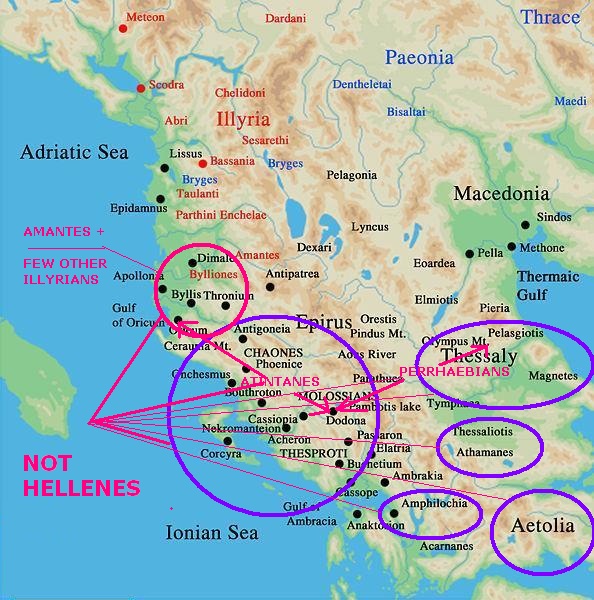
There is nothing Greek in Illyria and its geographical division Epirus, beside some colonies:
And since we are talking about Epirus, there was only two of them with Greek colonists(not natives), Ambracia and Corcyra which was build in the Corcyra island originally inhabited by the Illyrian Liburnians.
Almost all ancient authors who described Epirus were stressing the term Hellenic polises(urbes-lat.) for the Greek colonies in Epirus and Illyria, a term that wouldn’t be necessary to use if Epirus was a Greek land.
Epirus is a geographical term, and opposed to the general idea does not have ethnic implication in its meaning, when we talk about ancient times. It was inhabited from a series of Illyrian and Thracian tribes and Greek colonies, people who had in common the same origin and was sharing the same language who is regarded today as Greek but was in fact the language of all these people, and if we name it: Pelasgian, we don’t fall in big mistake, although the wrong idea spread from Greek propaganda that this race was living only in Greece before the arrival of Greeks.
What is special about Epirus and Epirotes is that otherwise from the name Illyrians and Hellenes their name never disappeared, as Albanian hero portraits his race[ in a letter send as a response to the Prince of Taranto who was trying to humiliate Scanderbeg’s people(Albanians) comparing them to sheep]:

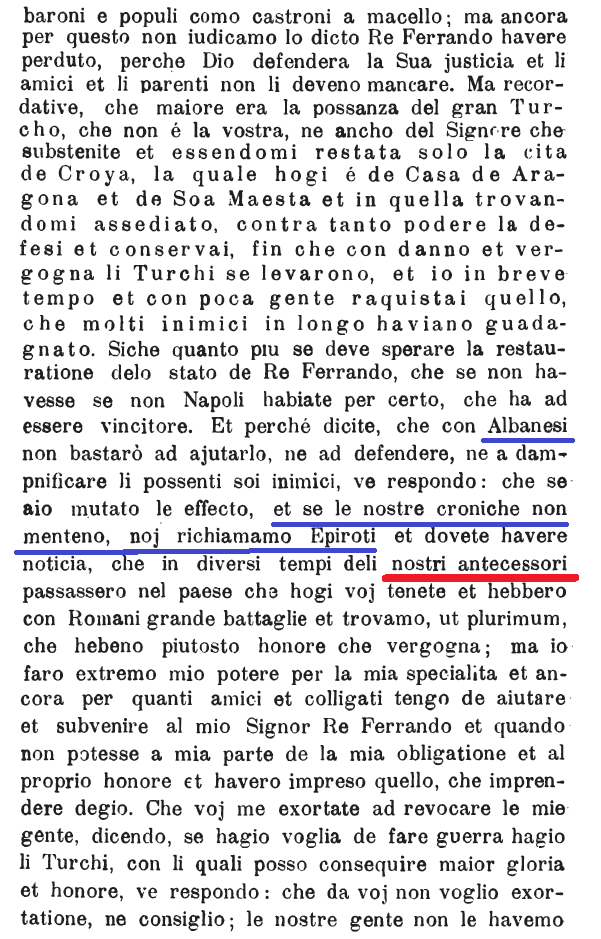
Probably the ideologists of Greek propaganda are wishing that his chronicles were lying, but unfortunately for them and their hopes, all the Latin literature is giving the same meaning Epirotes and Albanians using interchangeably these name as alternatives of different times, that of the past Epirotes, and that of the present Albanians .
In any Encyclopedia or Dictionary:
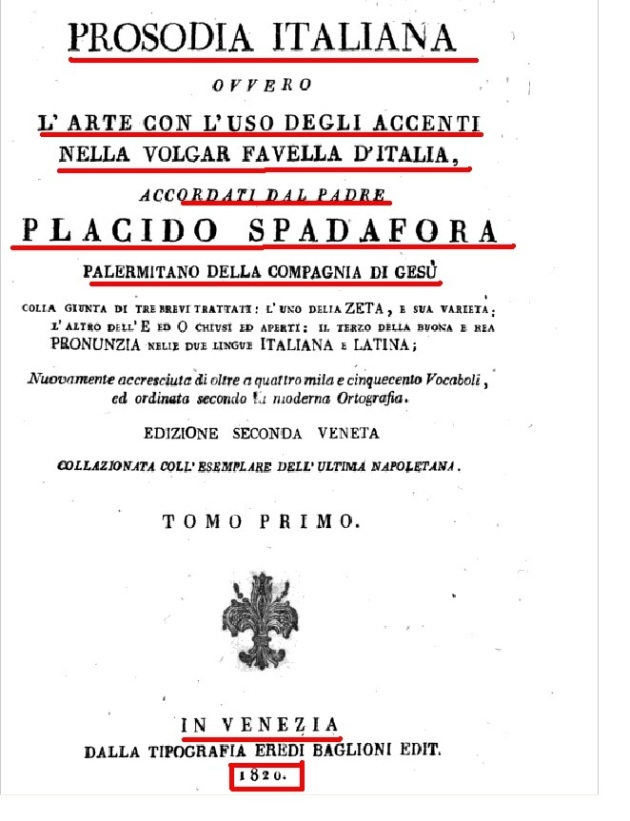
and this is the time corresponding to the time of Greek state creation
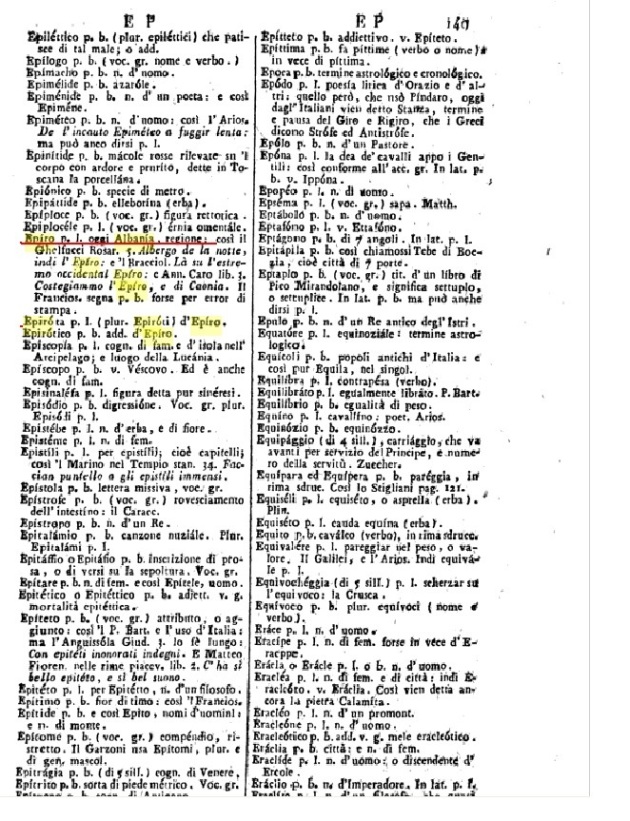
English: Epirus today called Albania
or
Dictionarium Latino Epiroticum, per R.D. Franciscum Blanchum,
Romae: Typis Sac.Congr.de Propag. Fide. 1635
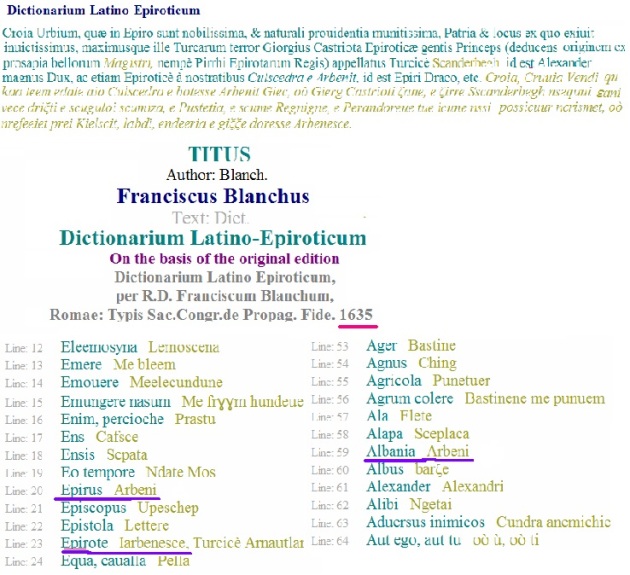
In any map:
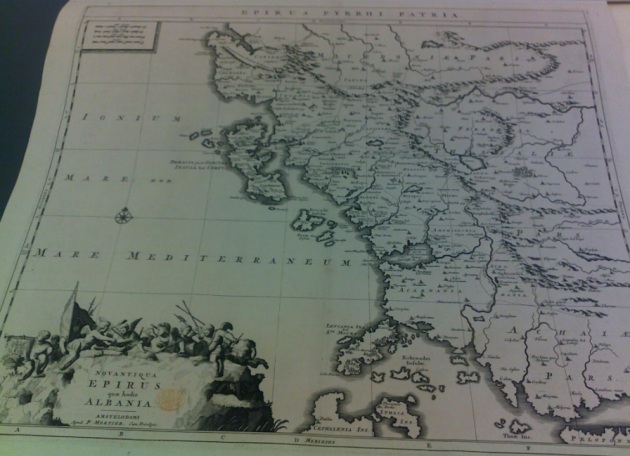
Map 1600 AD
English: Epirus called Albania today.
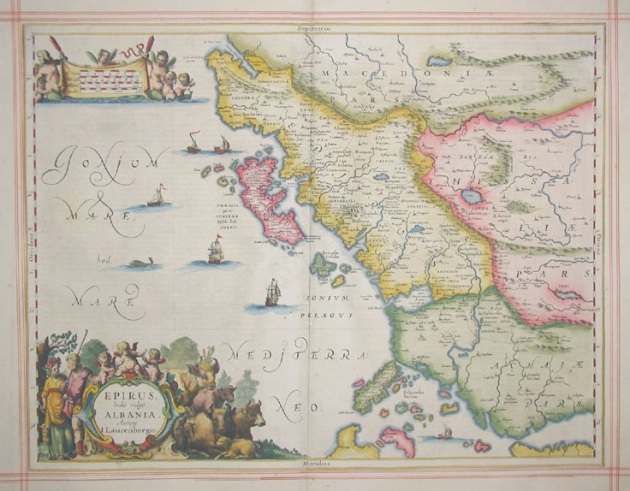
English: Epirus called Albania today
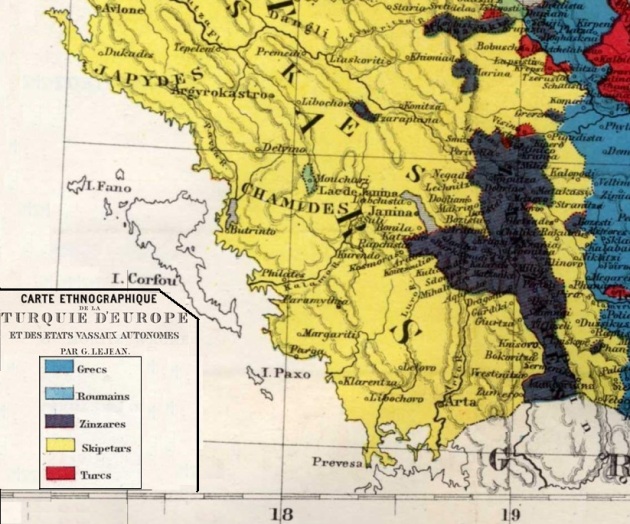
In any book dedicated to the Albanian heroes
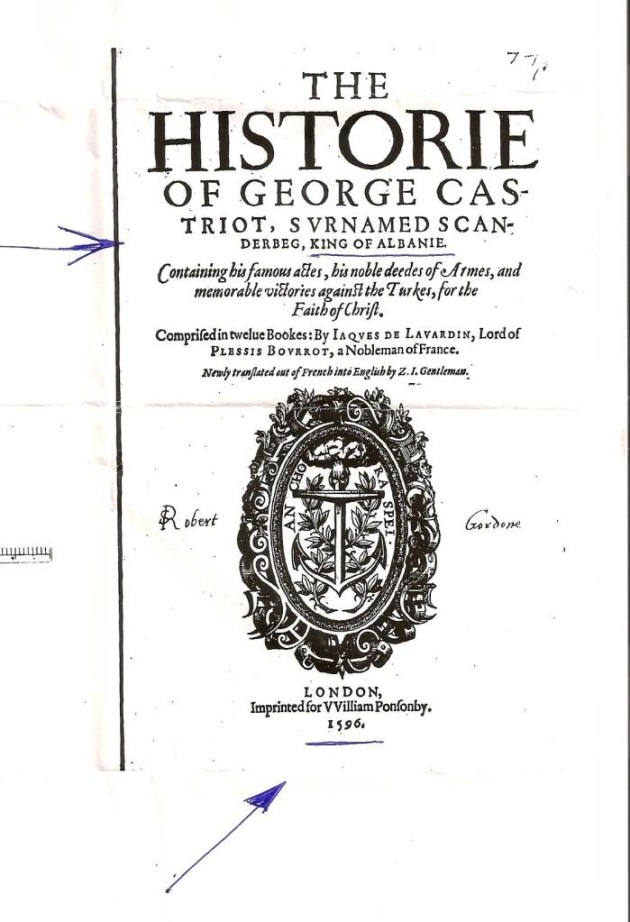
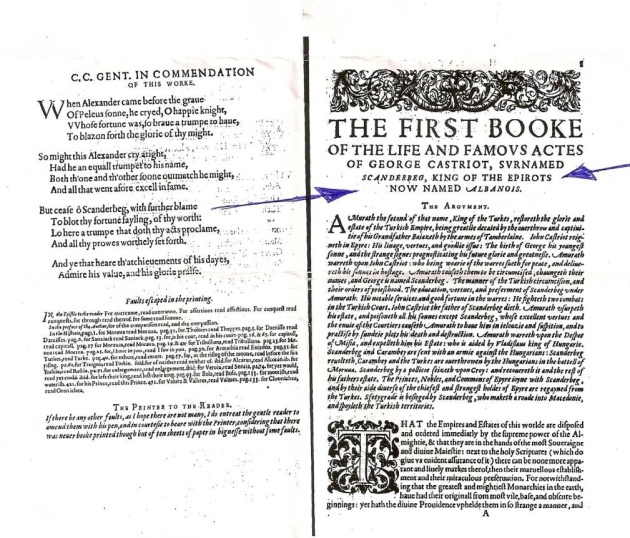
or in any Italian book about them:
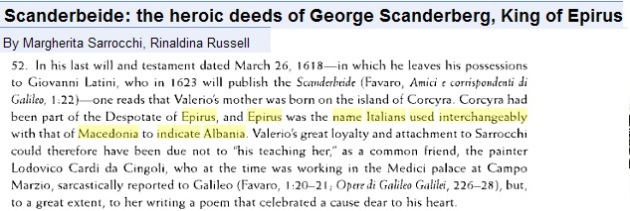
In any translation of the ancient authors (like this book of Pliny the Elder)
from the translator Lodovico Domenichi(1483-1552) in the year 1515 AD, the text written from Pliny the Elder taken from his book III chapter 26/23
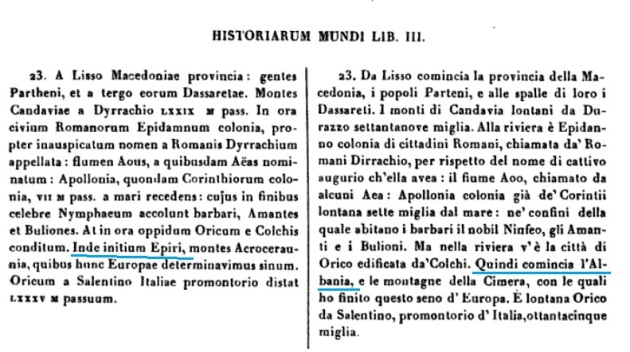
in any medieval book where is written about Epirus:
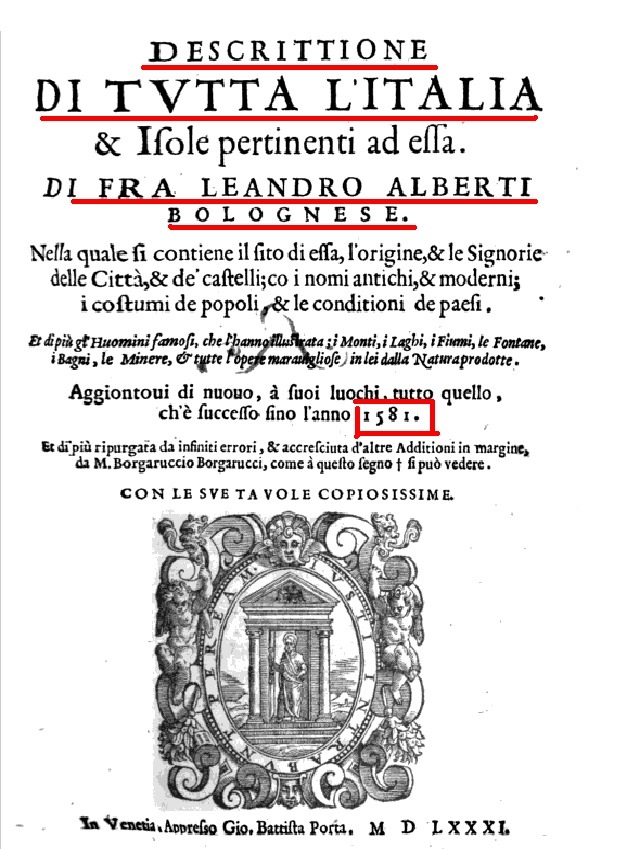
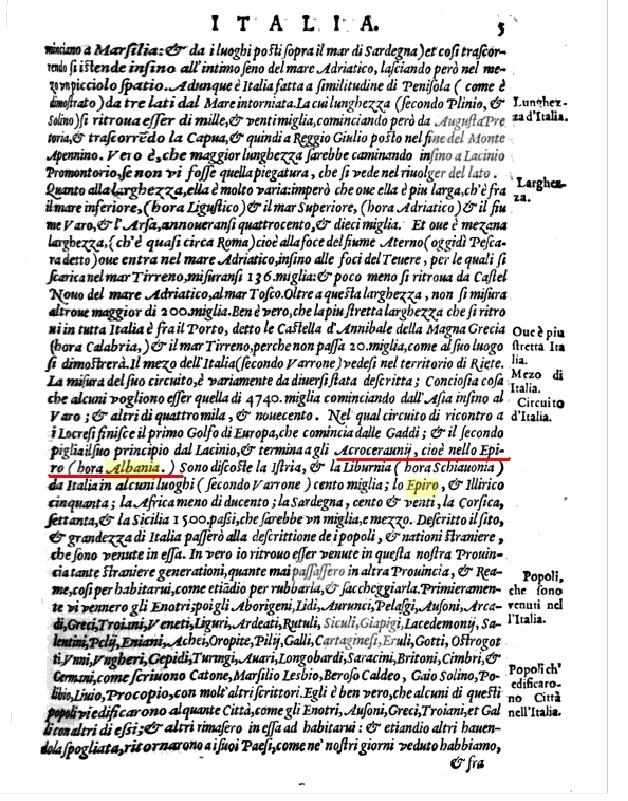
Book, year 1581
And most importantly this connection is demonstrated spontaneously from anyone other than Albanians. The accusation against so called “Albanian propaganda” is false and ridiculous. There is no Albanian propaganda; no nationalistic movement was in existence when Scanderbeg recognized Albanians as Ancient Epirotes and claimed Pyrrhus and Alexander the Great as their ancestors:
Moreover, you scorned our people, and compared the Albanese to sheep, and according to your custom think of us with insults. Nor have you shown yourself to have any knowledge of my race. Our ancestors were from Epirus, where this Pyrrhus came from, whose force could scarcely support the Romans. This Pirro, who Taranto and many other places of Italy held back with armies. I do not have to speak for the Epiroti. They are very much stronger men than your Tarantini, a species of wet men who are born only to fish. If you want to say that Albania is part of Macedonia I would concede that a lot more of our ancestors were nobles who went as far as India under Alexander the Great and defeated all those peoples with incredible difficulty. From those men come these who you called sheep. But the nature of things is not changed. Why do your men run away in the faces of sheep?
That was a time when everyone was running way in the faces of the martial race of Albanians, now it is the time for us to talk about that past and to clear things up from the dust of the oblivion, because we won’t tolerate the Modern Greeks and philhellenes to hijack our history, land and heroes. We won’t tolerate people of our own race who pose themselves as Hellenes, a term that they never heard about before 19th century, to claim Epirus a Greek land and Epirotes as Hellenes. We won’t stop arguing against these people, named Hellenes today, a term that they hardly know the meaning, people who find harmonious their reconstruction of history through lies and science. They are asking a little too much from history and heroes, they are stressing out a little too much false Greek superiority, based on the myths of the past, making capital on something not only unreal but evidently not theirs. We are incapable to make propaganda because we don’t need to, we are not ignorant as they sometime label our reaction regarding history, but we don’t want to base our argument in lies and distortortion as they do, but if they want to take some knowledge of our common interpretation and political behavior about the ancient history, I will bring a quote from that time:
An Athenian once told a Spartan that the people of Sparta were ignorant.
An Athenian once told a Spartan that the people of Sparta were ignorant.
“What you say is true,” the Spartan replied. “We have learned none of your evil ways.”
We will face your evil ways and arguments with well-based arguments and real facts, and a time will come that you will run way as sheeps in our faces. This is just the beginning for your run, not
THE END
THE END
Prepared and written by Zeus10
In collaboration with Albpelasgian, Mallakastrioti and Socio.
helped by Pirro, Arber, Arta etc.
Video prepared by Mallakastrioti
BIBLIOGRAPHY:
1. Homer, Iliad
2. Homer, Odyssey
3. Strabo, Geography
4. Thucydides, History of the Peloponnesian War,
5. Pausanias, Description of Greece
6. Euripide, Orestes
7. Scymnus of Chios
8. Stephanus Byzantinus, Ethnica (Εθνικά).
9. AESCHYLUS, Suppliant,
10. APPIAN, The Foreign Wars
11. ARISTOPHANES ”THE BIRDS
12. POLYBIUS – ‘THE RISE OF THE ROMAN EMPIRE’, HISTORIES
13. Prosodia Italiana ovvero L’Arte con L’uso degli accenti Nella Volgar Favella D’Italia, Venecia 1820
14. The History of George Castriot, Surnamed Scanderbeg, King of Albanie, London 1596
15. Pliny the Elder, translated by Lodovico Domenichi in the year 1515 AD
16. Descrittione Di Tvtta L’Italia, 1581
17. The Cambridge Ancient History, Volume III, Part III, The Expansion of the Greek World, Eighth to Sixth Centuries B.C
18. The Cambridge Ancient History, Volume III, Part I, The Prehistory of the Balkans; and the Middle East and the Aegean world, tenth to eighth centuries B.C
19. Singing for the Gods, Performances of Myth and Ritual in Archaic and Classical Greece
Dedicated to our parents and to all those intellectuals who worked so hard that the name Epirus and Epirotes not to be confused and manipulated, but to be used and revived where it originally belongs , to ALBANIA.

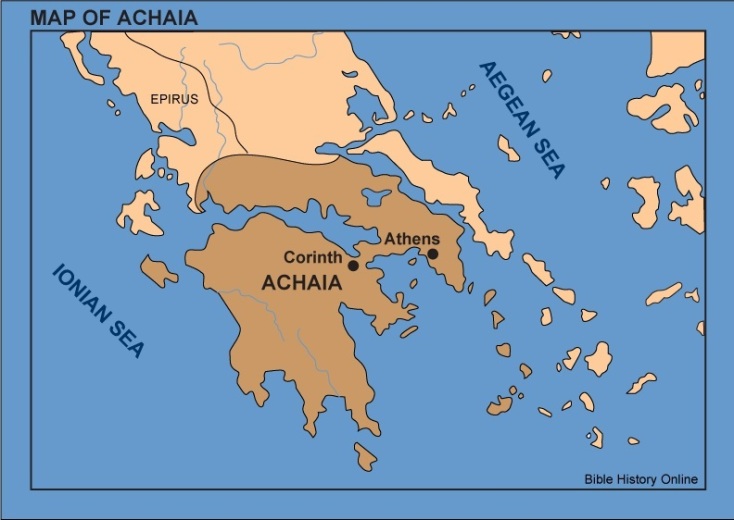
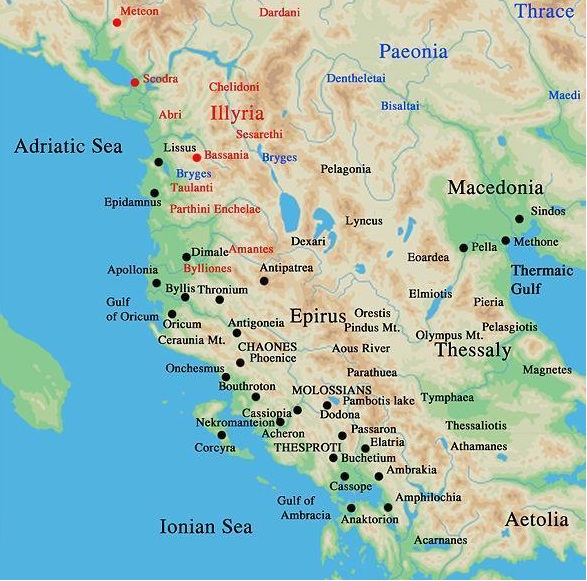
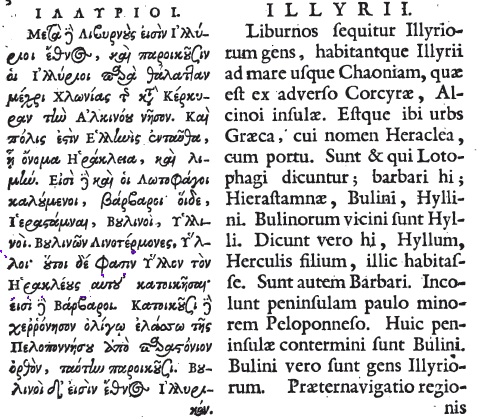
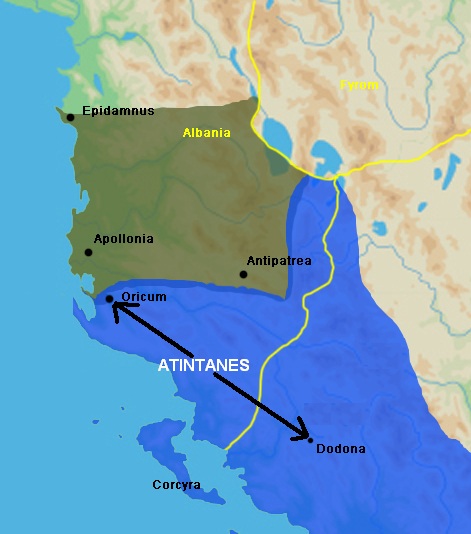
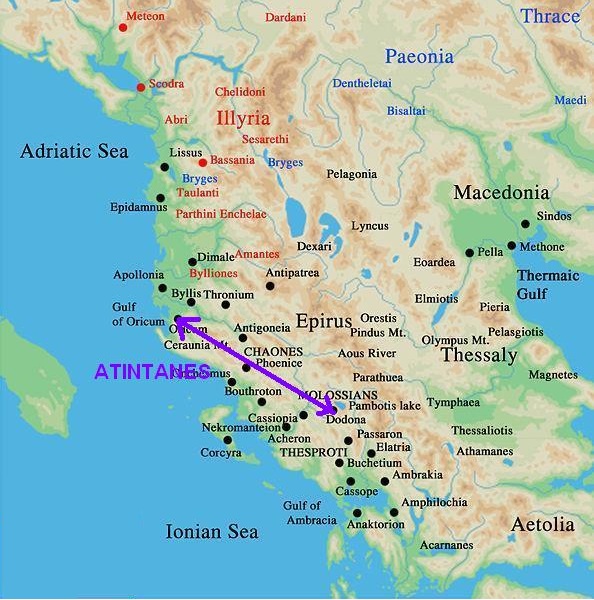

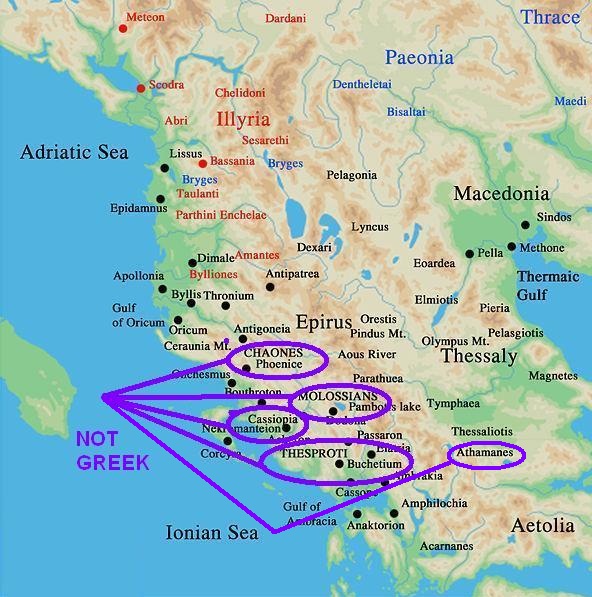
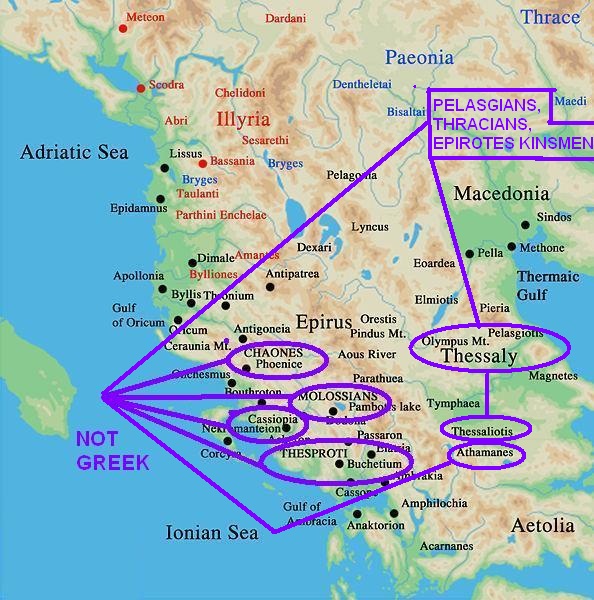
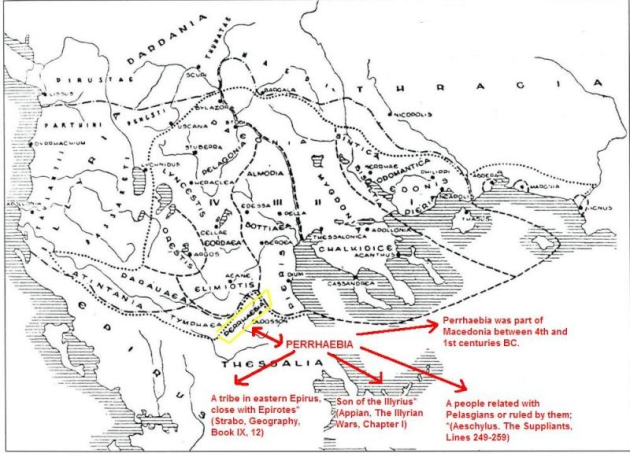
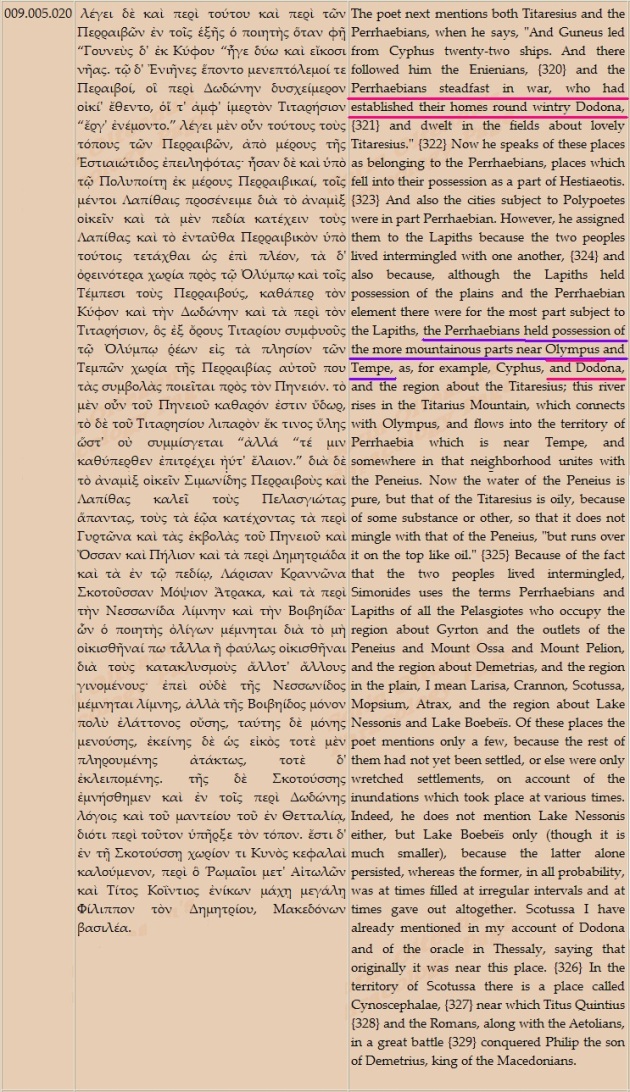
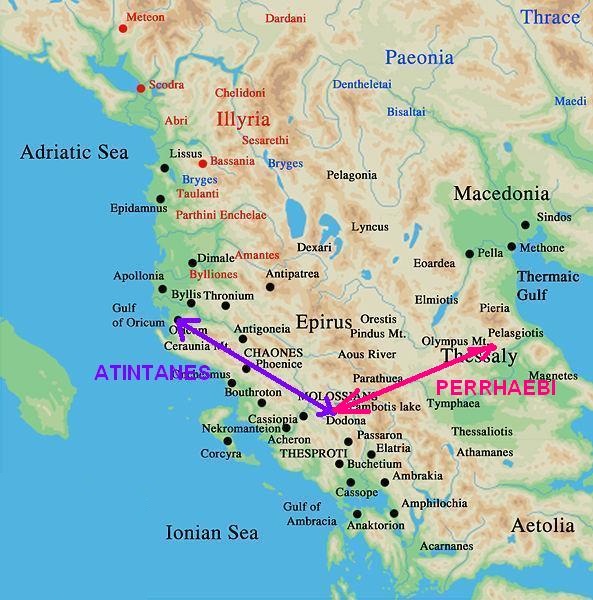
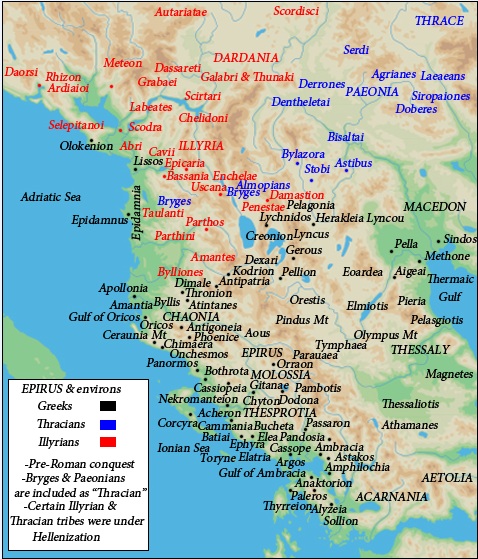
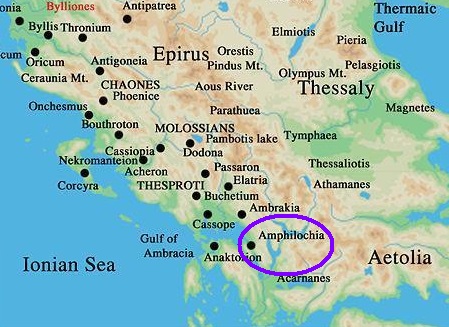
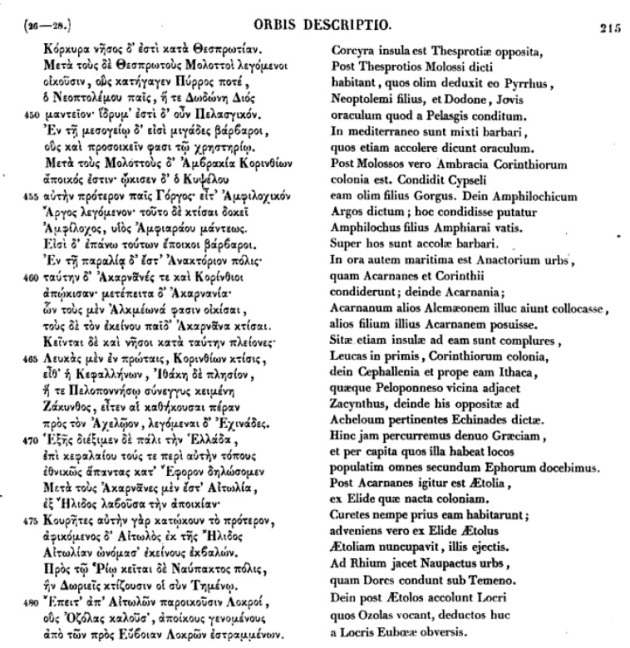
No comments:
Post a Comment